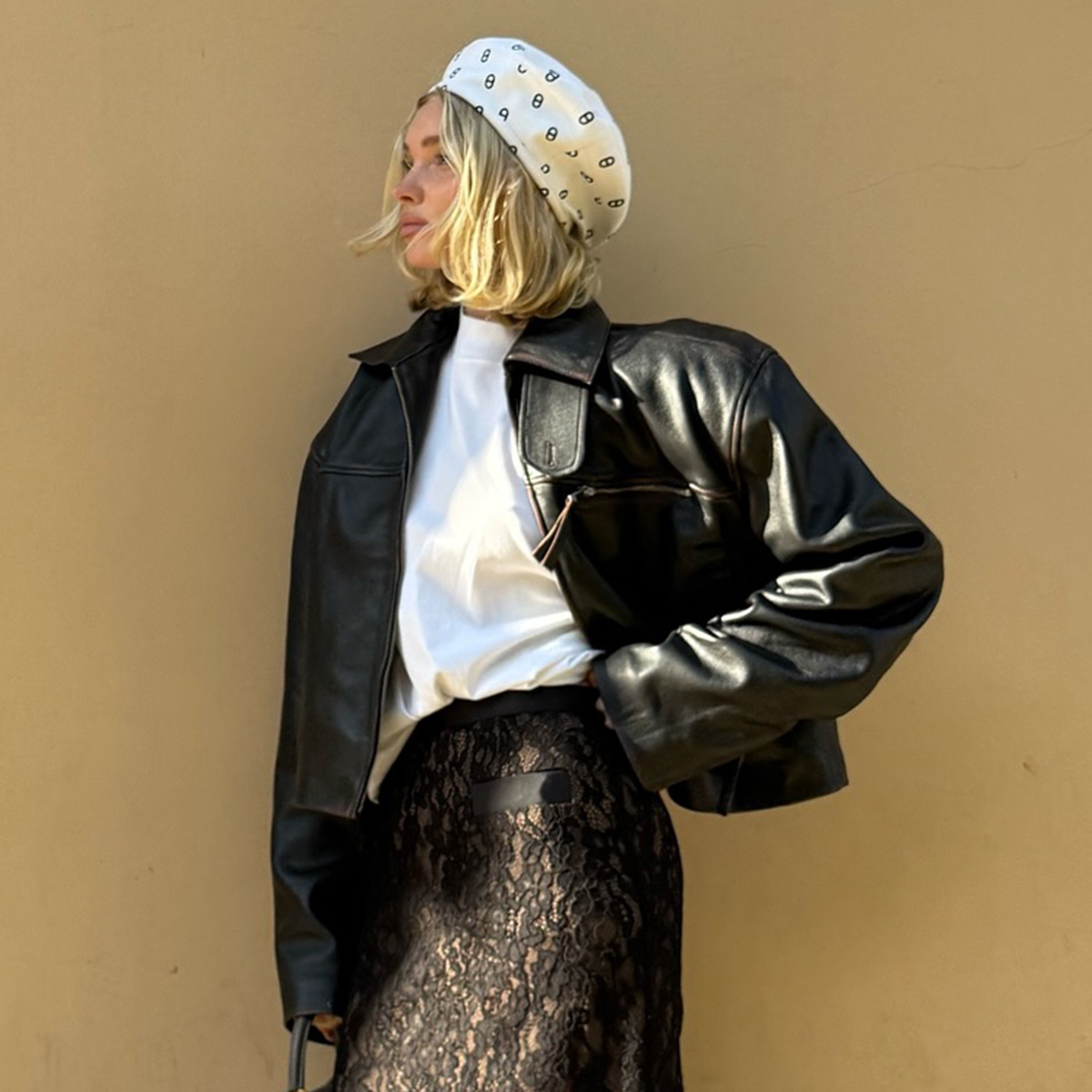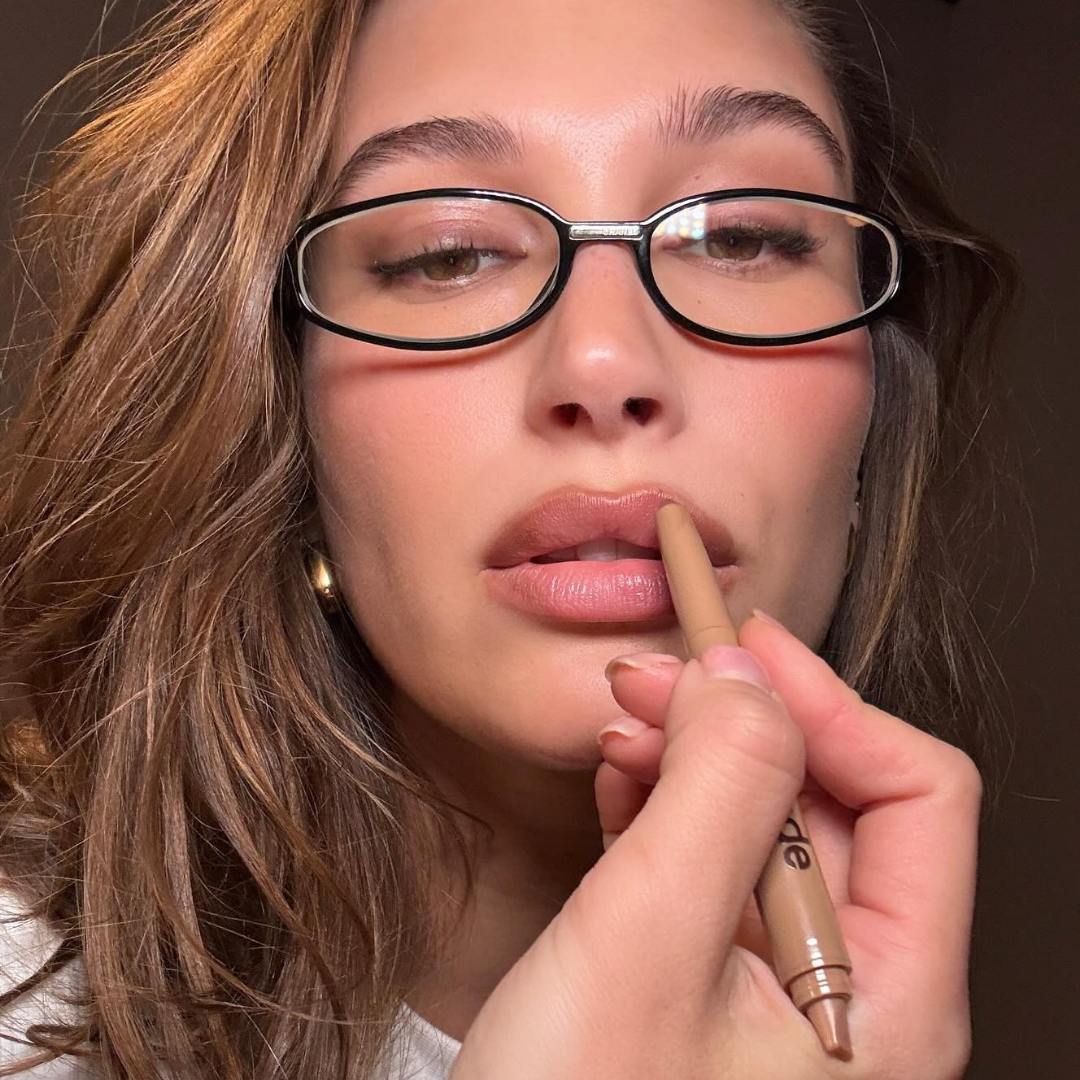We've Tried Hundreds of Them—These Are the 17 Best Face Serums for Unbelievably Good Skin

Grace Day
The cornerstones of a good skincare routine may be the basics of cleansing and moisturising, but if you really want to level things up and target your specific skin type, this is where the best face serums come into play. Packed with high-strength active skincare ingredients, like retinol, vitamin C, and niacinamide, serums are the powerhouses of your skincare routine.
While moisturisers focus on hydration and cleansers help to ensure pores are clear, applying a serum is your opportunity to hone in on your unique skin concerns. Choose the right formula and a serum can help you to reduce sensitivity, prevent dehydration, clear breakouts, and even reduces the appearance of fine lines, wrinkles, and enlarged pores. Sounds pretty good, right? I've tested hundreds of serums over the years, from hyaluronic acid serums to the best serums for mature skin, and with well over 50 collective years working in beauty, I know my fellow Who What Wear editors have some great intel on the best serums, too. So, what are you waiting for? Keep on scrolling to level up your skincare game...
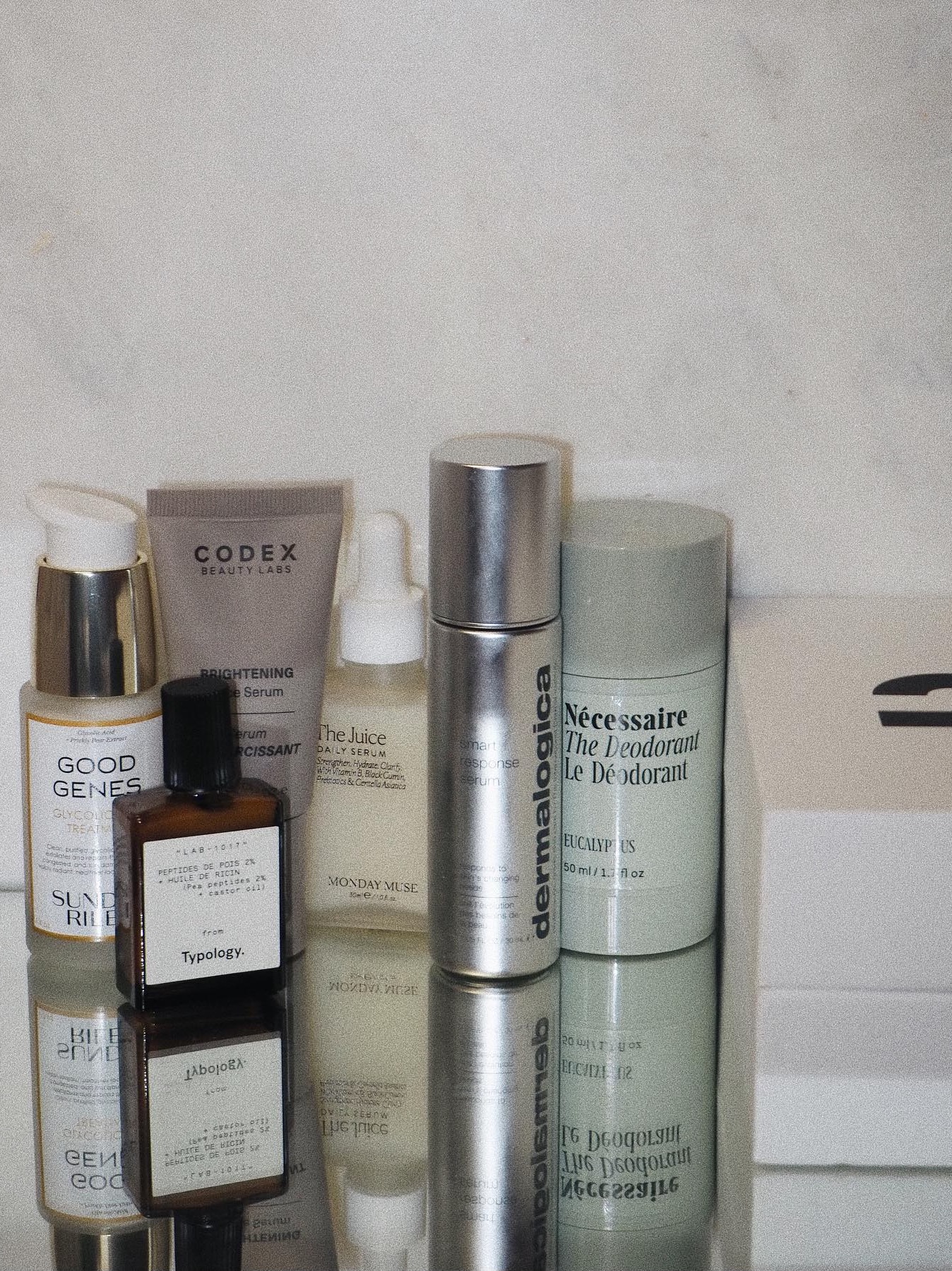
What Is a Face Serum?
Before we get into our edit, I thought it would be best to answer some of your burning questions. If you're wondering what a face serum actually is, I've been busy speaking to industry experts to get the full lowdown.
"Serums are thinner topical skincare products that often contain more concentrated, targeted active ingredients,” explains consultant dermatologist, Thivi Maruthappu.
You might be thinking, how is this different to my moisturiser? "Serums, often lightweight in texture, are designed to treat specific skin concerns—such as breakouts, fine lines, dry skin—and tend to penetrate deeper in the epidermis, whereas moisturisers act as skin conditioners, providing hydration to the most upper layers of the skin barrier," explains Laura Bamidele, director of innovation and R&D at leading skincare brand, Byoma. "These upper layers form a waterproof skin barrier locking in hydration, essentially allowing your serums to work more effectively."
Who Should Use a Face Serum?
Another question I get asked a lot is whether anyone can use a face serum. According to the experts, before investing in a serum, it's important to think about whether you really need one in your routine. "Serums are a great addition to skincare routines for all skin types, it really depends on what skin concern you are trying to treat," says Bamidele. "You should start incorporating a targeted serum into your routine only when you need to address those key concerns, and we do not recommend retinol serums to anyone under the age of 25."
The best way to introduce serums into your skincare routine is to think of your main skin goal or concern and choose a serum to help you address it. If you’re struggling to choose between two, then use one serum in your morning skincare routine and one in the evening—but be careful of layering multiple serums together at once, since not all ingredients may be compatible.
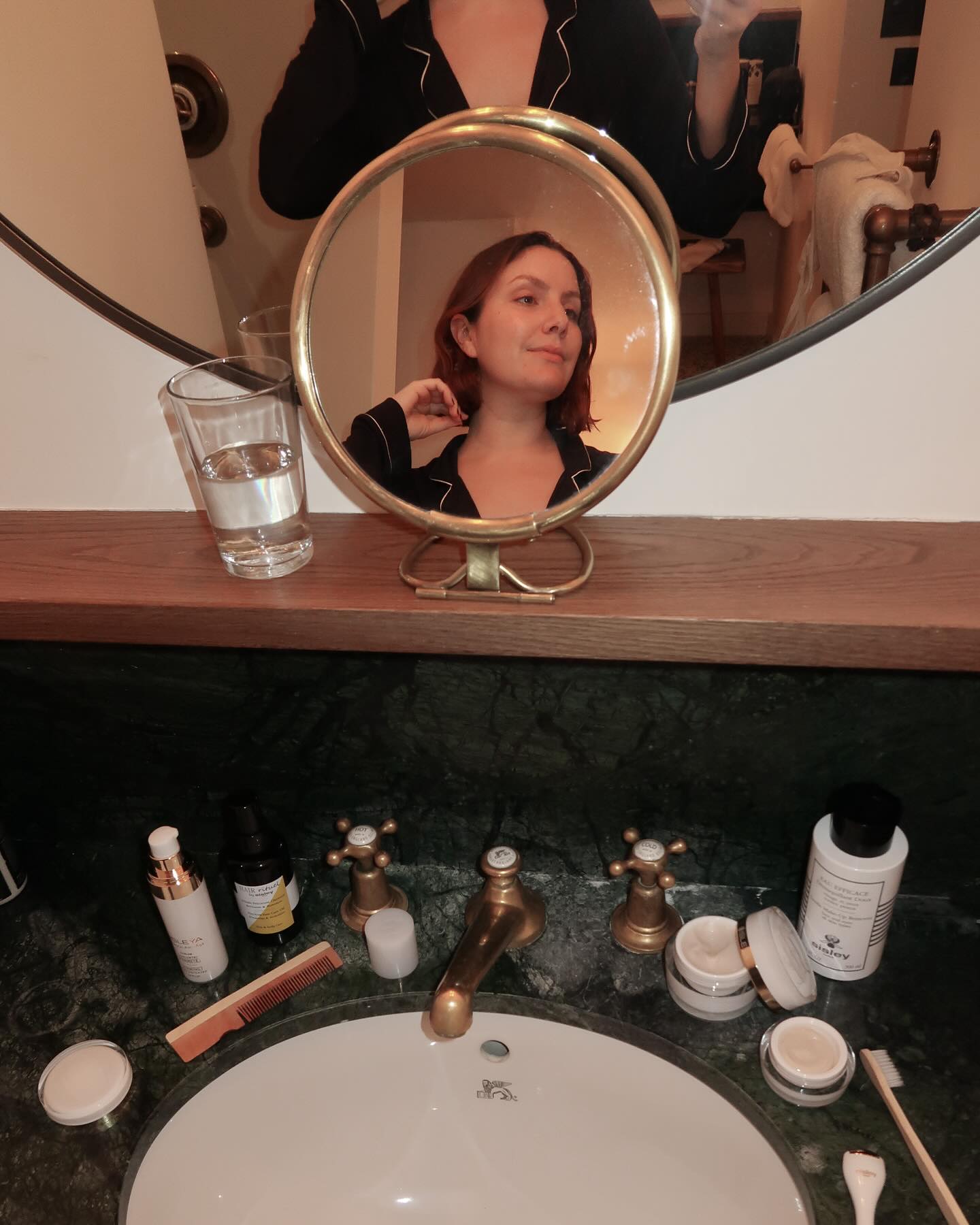
How to Choose the Right Face Serum for You
So, how can you choose the right serum for you? "Look for gentle actives that are going to support your skin barrier and leave you with hydrated, healthy results," advises Bamidele. Below, Bamidele has broken down the best ingredients for different skin types.
Choosing a serum for oily skin: "Combination to oily skin types can benefit from ingredients like PHA and zinc, that gently exfoliate, balance oiliness, target blemishes and help to unclog pores."
Choosing a serum for dry skin: "For dry skin types, nourishing actives like squalane and glycerine replenish skin’s moisture levels by delivering instant hydration with lasting results to repair a damaged, dry skin barrier."
Choosing a serum for dull skin: "Niacinamide and hyaluronic acid are great if you are wanting to renew dull skin. Niacinamide will work to brighten and even skin tone, while hyaluronic acid works to intensely hydrate for a radiant, glowing finish."
How to Apply a Face Serum
If you’re wondering when and where within your skincare routine to apply a serum, remember the key rule of skincare layering—thin textures first, building up by thickness. "Serums should be applied to cleansed skin before moisturising,” advises Maruthappu. "Leave for ten minutes or so before following with a moisturiser.” Most serums will need to be applied daily in order for you to see results within a few weeks and you may be able to apply some twice daily (just check the application instructions).
Over the years, my own skin concerns have ranged from oiliness and breakouts through to sensitivity, redness, and hyperpigmentation, and more recently, dryness and dehydration—so it’s fair to say I’ve tried my fair share of serums. Since it can be hard to choose the right one, I’ve rounded up some of my tried-and-tested favourites below, along with the Who What Wear team's most recommended, too, broken down by skin types and concerns.
The Best Serums, Tried And Tested
- Best face serum overall: Estée Lauder Advanced Night Repair Serum
- Best face serum for mature skin: Clarins Double Serum
- Best face serum for dry skin: Vichy Mineral 89 Hyaluronic Acid Booster Serum
- Best face serum for oily skin: SkinCeuticals Silymarin CF Vitamin C Salicylic Acid Antioxidant Serum
- Best face serum for sensitive skin: Avène Cicalfate+ Intensive Skin Restorative Serum
1. Estée Lauder Advanced Night Repair Serum
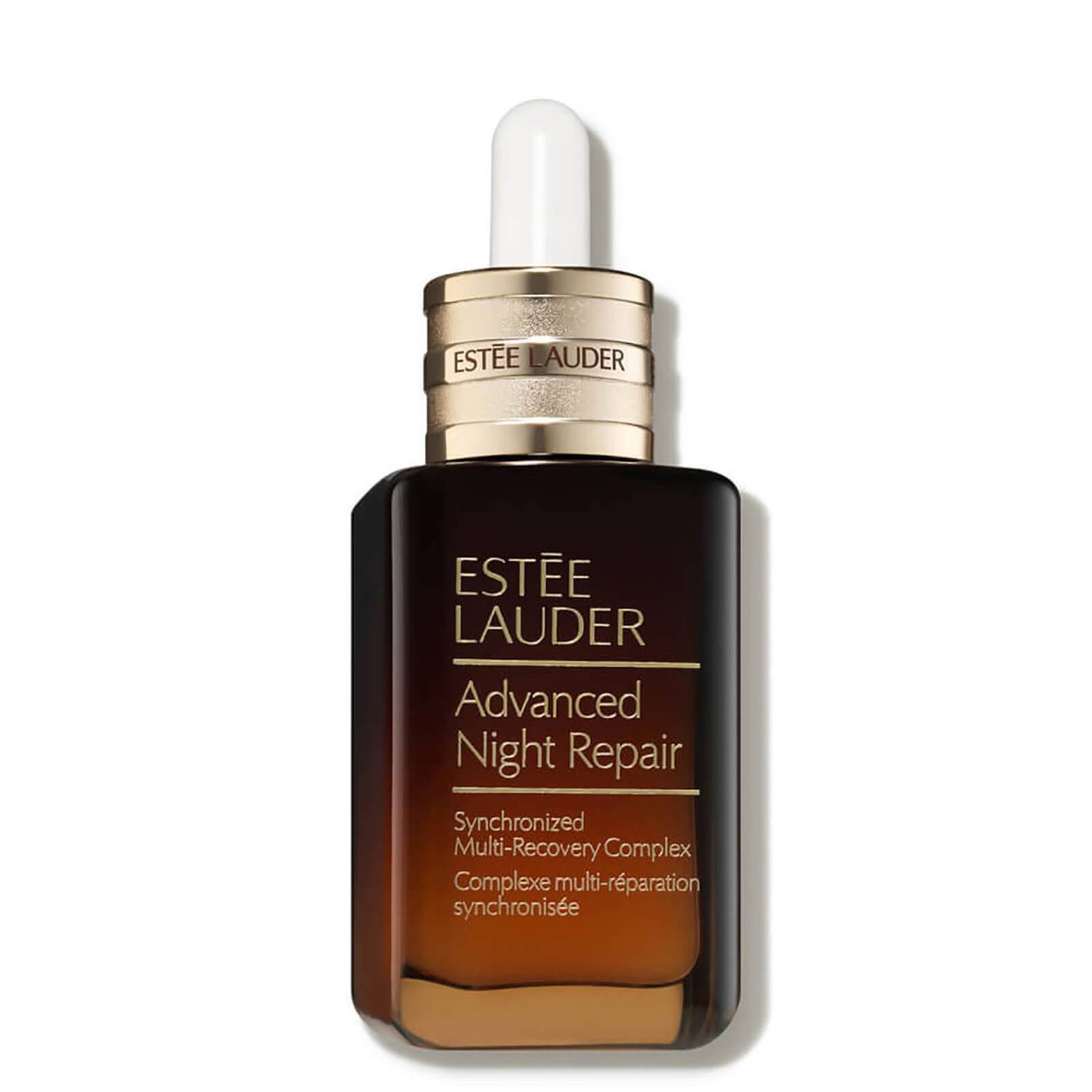
Best for: Tackling a range of skin concerns
Why it's the best: If you’re a skincare minimalist, or you simply want a do-it-all serum to target multiple concerns at once, look no further. This iconic serum combines a cocktail of effective ingredients (including hyaluronic acid and peptides) to target dryness, fine lines, dullness, uneven skin tone and dehydration, all in one go. Clinical trials show that 91% noticed their skin having a healthy glow after three weeks, but it’s the rave reviews that really sell this product.
Who What Wear Editor Review: "Estée Lauder's Advanced Night Repair Serum is absolute game-changer. If you want to wake up with a glowing, hydrated and revitalised complexion, then you need to try this stuff. I'd bathe in it if I could," says deputy editor, Maxine Eggenberger.
For
- Tackles a wide range of skincare concerns
- Packed with effective ingredients
Against
- Quite expensive
2. Clarins Double Serum
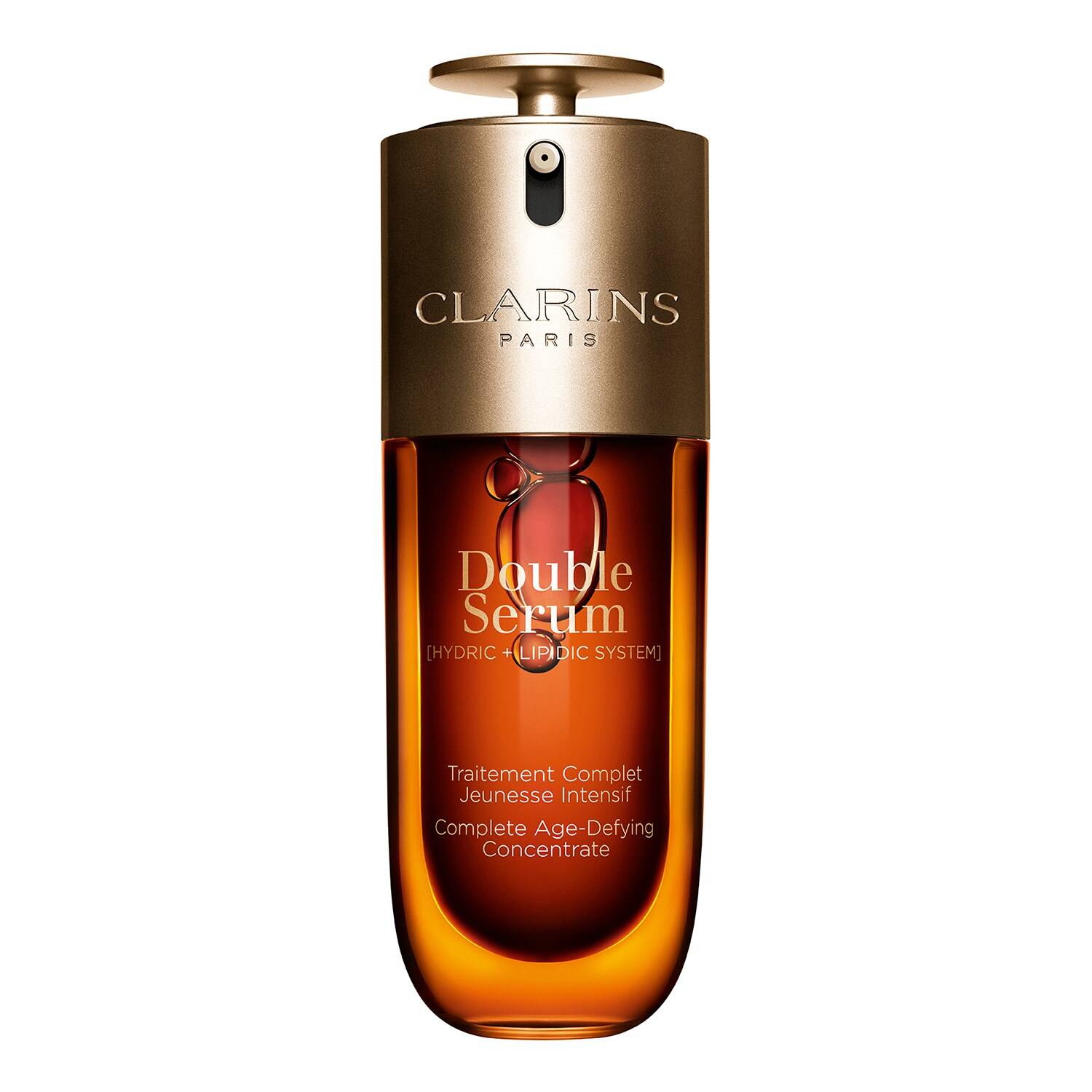
Best for: Mature skin
Why it's the best: Another iconic skincare product, the Clarins Double Serum is a must have in your skincare routine. It's especially great for more mature skin as it works to reduce fine lines, refine the skin's texture and add a plump, radiant finish. As the name suggests, it has a unique dual formula that features efficacious plant extracts to protect the skin from environmental stressors. Yes, it's expensive, but beauty editors swear by this stuff.
Who What Wear Editor Review: "I have three serums that I know I will use forever—Estée Lauder Advanced Night Repair, Shiseido Ultimune and this, Clarins Double Serum. All three of these serums offer me similar things in that I know I can slap them onto my face and feel assured my skin is only going to look better for it—trust me, Double Serum is the MVP of any great simple skincare routine. It has remained a cult bestseller for years thanks to its skin-loving formula that couldn’t upset a complexion if it tried. Hyaluronic acid and vegetal squalane nourish and nurture your skin barrier for boosted glow and hydration, while peptides tackle a number of concerns linked to skin ageing. The dual-texture combines a water-based serum with an oil-based serum to mimic the skin’s natural makeup, and it is a total joy to use. If you’re looking for a really great does-it-all serum that your skin will love, just trust me—this is it," says beauty director, Shannon Lawlor.
For
- Can be used on normal, oily and dry skin
- Especially good for mature skin types
Against
- Very expensive
3. Vichy Mineral 89 Hyaluronic Acid Booster Serum
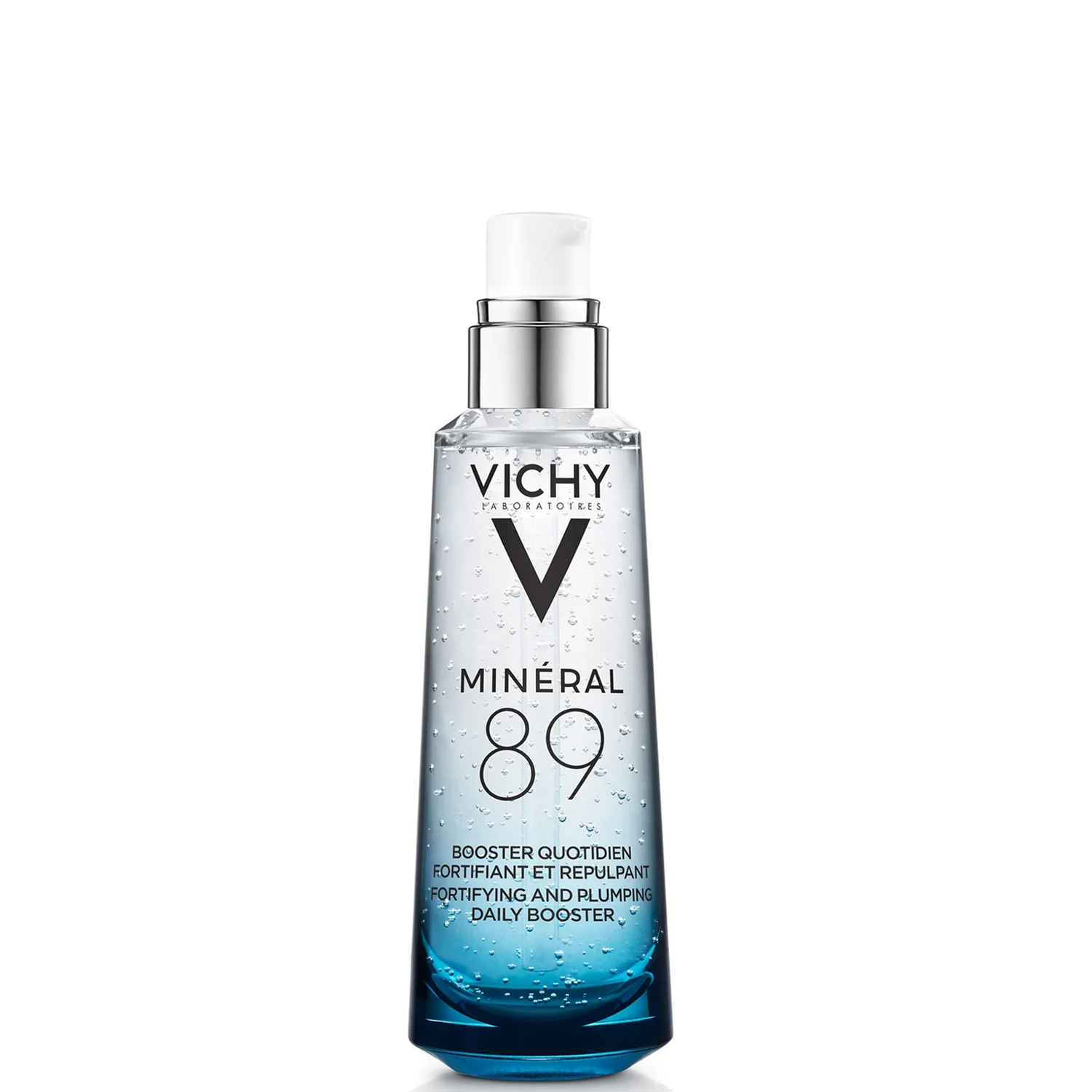
Best for: Dry skin
Why it's the best: If you're suffering with dry skin this winter, then you need to know about this Vichy serum. This bestselling product is packed with hyaluronic acid alongside the brand's highest concentration of Volcanic Mineralizing Water to drench the skin in moisture. That being said, it's also incredibly lightweight and sinks into the skin in seconds, Yep, it's pretty much magic.
Who What Wear Editor Review: "This serum has transformed my complexion. I recently saw a dermatologist who told me how dry my skin was, and they recommended this serum along with the matching moisturiser from the brand. It has a refreshing, gel-like texture that makes it a dream to use, and it hasn't irritated my sensitive skin once. Instead, my complexion is more hydrated than ever before," says junior beauty editor, Grace Lindsay.
For
- More affordable than other luxury options
- Super hydrating
- Refreshing texture
- Suitable for all skin types
Against
- Still a little more on the expensive side
4. SkinCeuticals Silymarin CF Vitamin C Salicylic Acid Antioxidant Serum
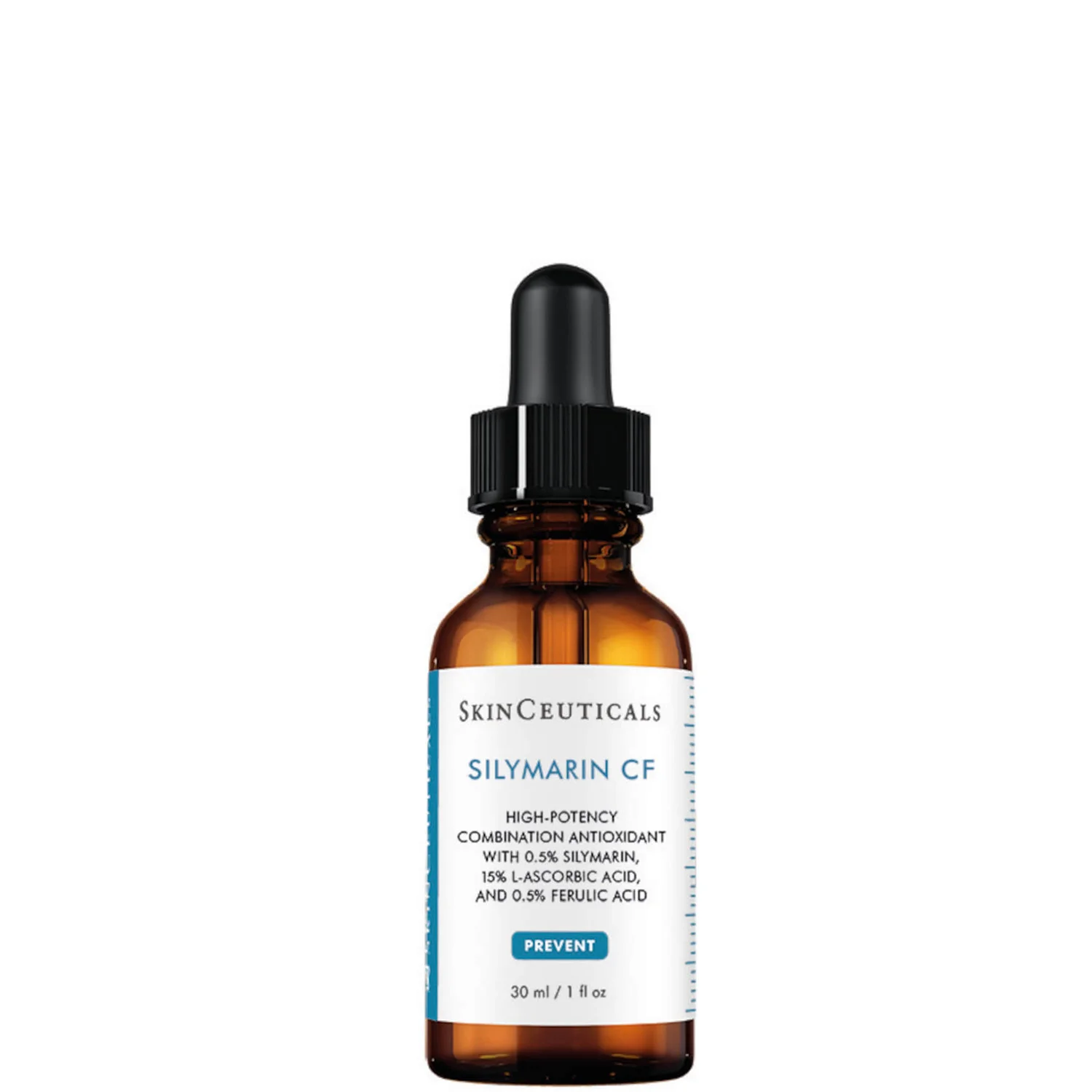
Best for: Oily skin
Why it's the best: Yes, even those of you with oily skin types can benefit from an effective face serum. Our top pick? This Skinceuticals option. It has a weightless consistency and sinks into the skin in seconds, so you don't have to worry about a greasy complexion. In fact, this serum actually works to control the appearance of excess oil and shine. It also contains 15% pure vitamin C to brighten the skin alongside salicylic acid to help fight breakouts and skin texture.
Who What Wear Editor Review: "Ok, so I know this serum is ridiculously expensive, but it's honestly one of the best skincare products I have tried. When I apply this in the morning, I always notice that my skin looks less oily throughout the day, and it also adds a beautiful glow. One thing I will say is that the serum does have a bit of a funny scent, but don't be alarmed by this as it disappears as soon as the product sinks into the skin," says junior beauty editor, Grace Lindsay.
For
- Helps to control excess oil and shine
- Adds a natural-looking glow to the skin
Against
- Really expensive
- Not the best scent
5. Avène Cicalfate+ Intensive Skin Restorative Serum
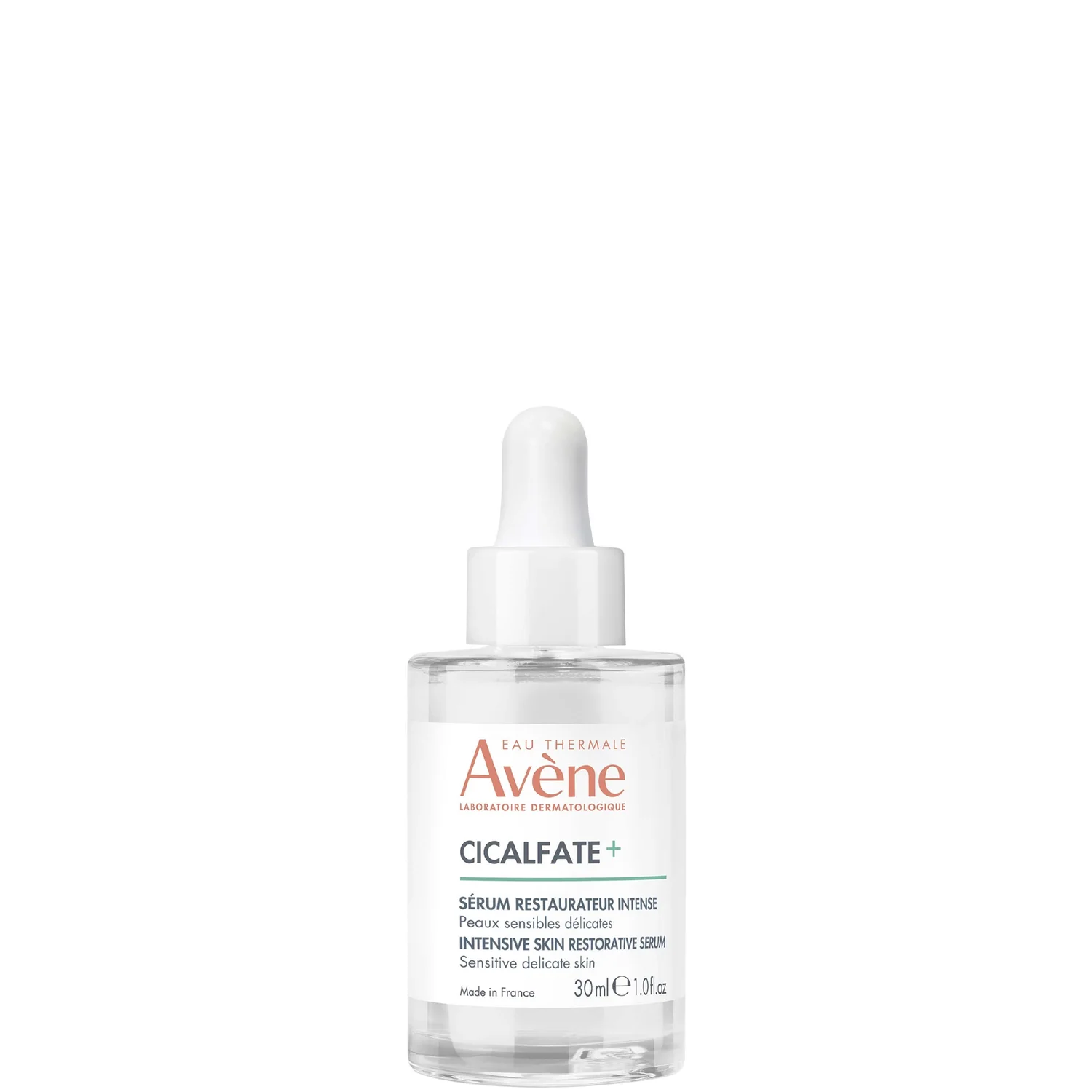
Best for: Sensitive skin
Why it's the best: If you find that your skin is sensitive by nature, or experiencing a irritated spell, then this is a great serum to add into your routine. Based on the iconic Cicalfate moisturiser (a French pharmacy must-have for all sorts of skin issues), this serum contains Avène's famous thermale spring water to soothe inflamed skin, while helping to balance moisture levels and strengthen the skin barrier to help prevent future sensitivity.
Who What Wear Editor Review: "Avène is my go-to brand when my skin is feeling extra sensitive. This always manages to soothe my skin and get it feeling back to normal. In fact, I even have my mum hooked on this as she also suffers from a more sensitive complexion," says junior beauty editor, Grace Lindsay.
For
- Soothes and calms skin
- Hydrates and protects the skin barrier
Against
- Won't help fight more specific skin issues
6. Caudalie Vinoperfect Brightening Dark Spot Serum
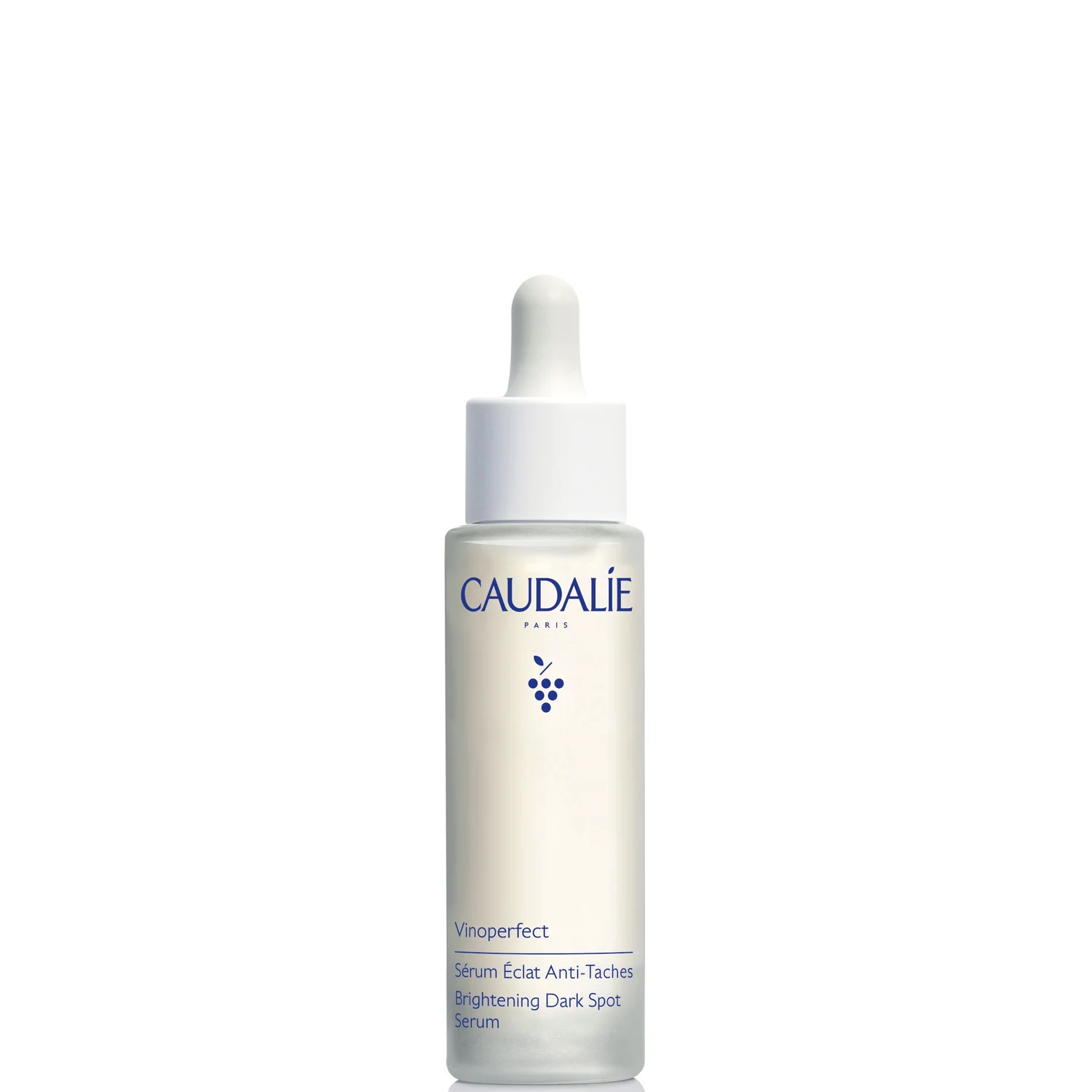
Best for: Dark spots
Why it's the best: This serum practically took over the internet when it launched, and for good reason. Not only does it make your skin look like you've just had the glowiest facial known to man, but the formula features the brand's patented Viniferine which works to reduce dark spots, pigmentation and uneven texture. Alongside this magic ingredient you'll find olive squalane that works to hydrate the skin without leaving your complexion with that unwanted greasy feeling.
For
- Hydrating, glowy formula
- Helps tackle dark spots
Against
- Expensive
7. Medik8 Crystal Retinal 1 Serum
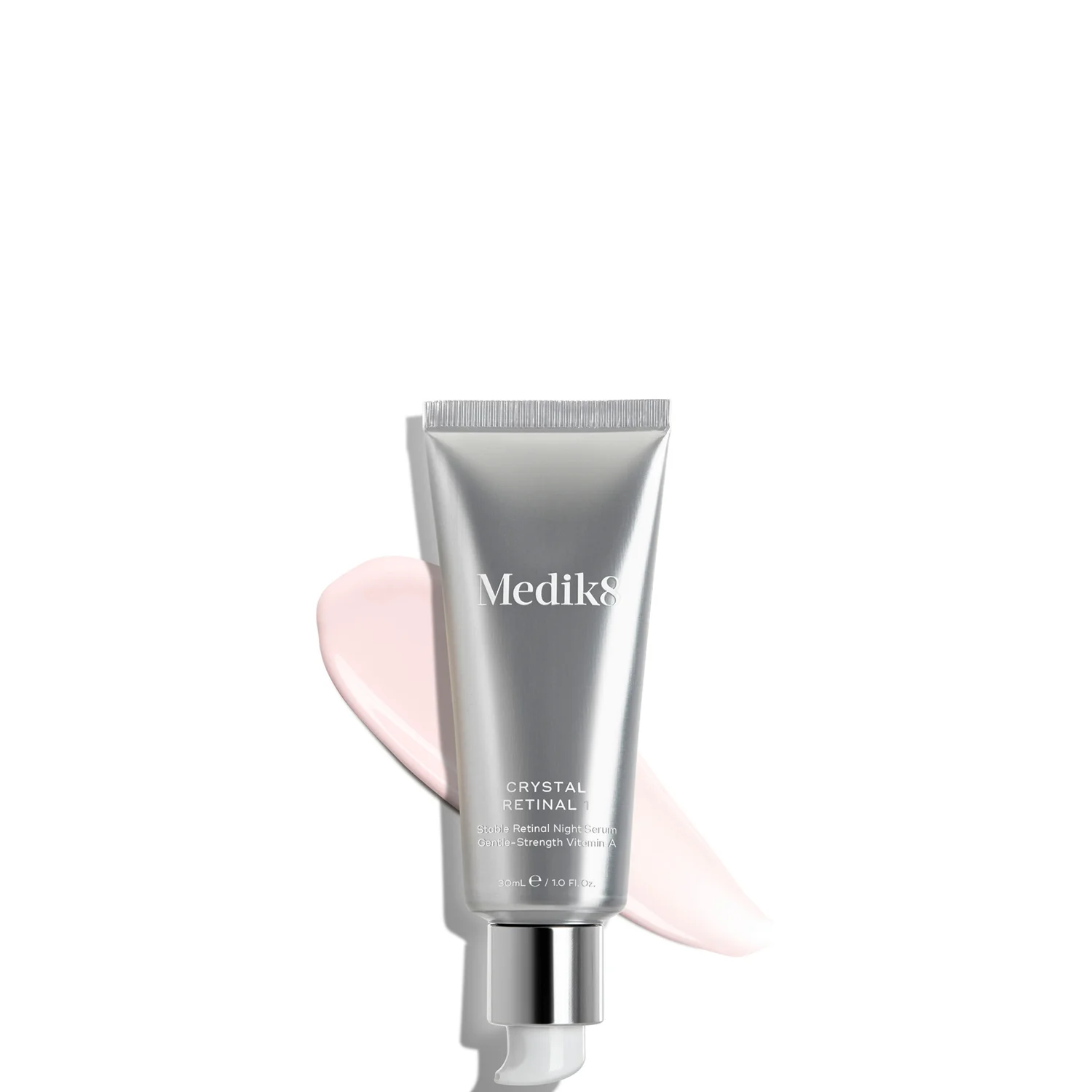
Best for: Dull skin
Why it's the best: If you're looking for a good retinol serum, look no further. Medik8's Crystal Retinal is loved by beauty editors for its radiance-boosting properties. As you can probably guess, this serum contains stabilised retinal, and comes in a range of different strengths depending on whether you've used retinal before (if you're new to the ingredient, always start slowly and work your way up gradually). This form of vitamin A works to smooth and renew the skin, while hyaluronic acid and glycerin hydrate the complexion and add a beautiful glow.
Who What Wear Editor Review: "I have sensitive skin and this is one of the only retinal products I trust. I began on strength one and am now on strength six, and I've seen my rough skin texture become more buttery and my fine lines have softened. Plus, I've never experienced any irritation," says beauty editor, Eleanor Vousden.
For
- Comes in a range of different strengths
- Great for dull skin
Against
- A little more expensive
- If you're new to retinal this could be quite irritating, so introduce gradually to your routine
8. Naturium Niacinamide Serum 12% Plus Zinc 2%
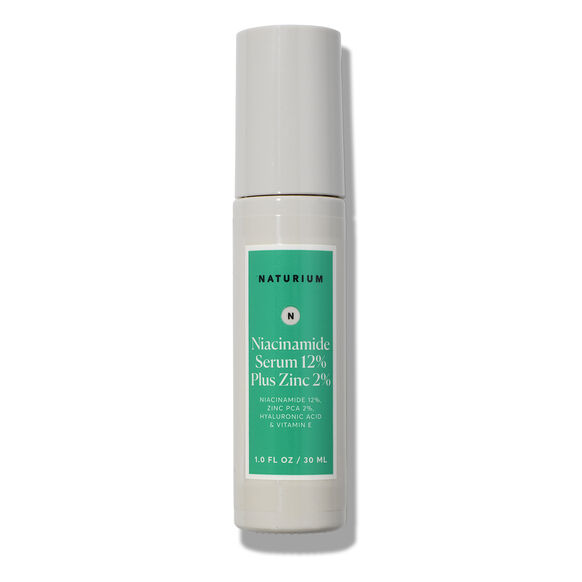
Best for: Combination skin
Why it's the best: Niacinamide is one of those rare but wonderful ingredients that has benefits for both dry and oily skin, making it an excellent choice if you experience a mix of the two skin concerns—what’s known as combination skin. Formulated with 12% niacinamide, this serum helps to regulate oil production, reduce the appearance of enlarged pores, and strengthen the skin barrier to prevent dehydration.
For
- A great option for combination skin
- More affordable
Against
- Might not be great for super dry skin
9. Bioeffect EGF Power Serum
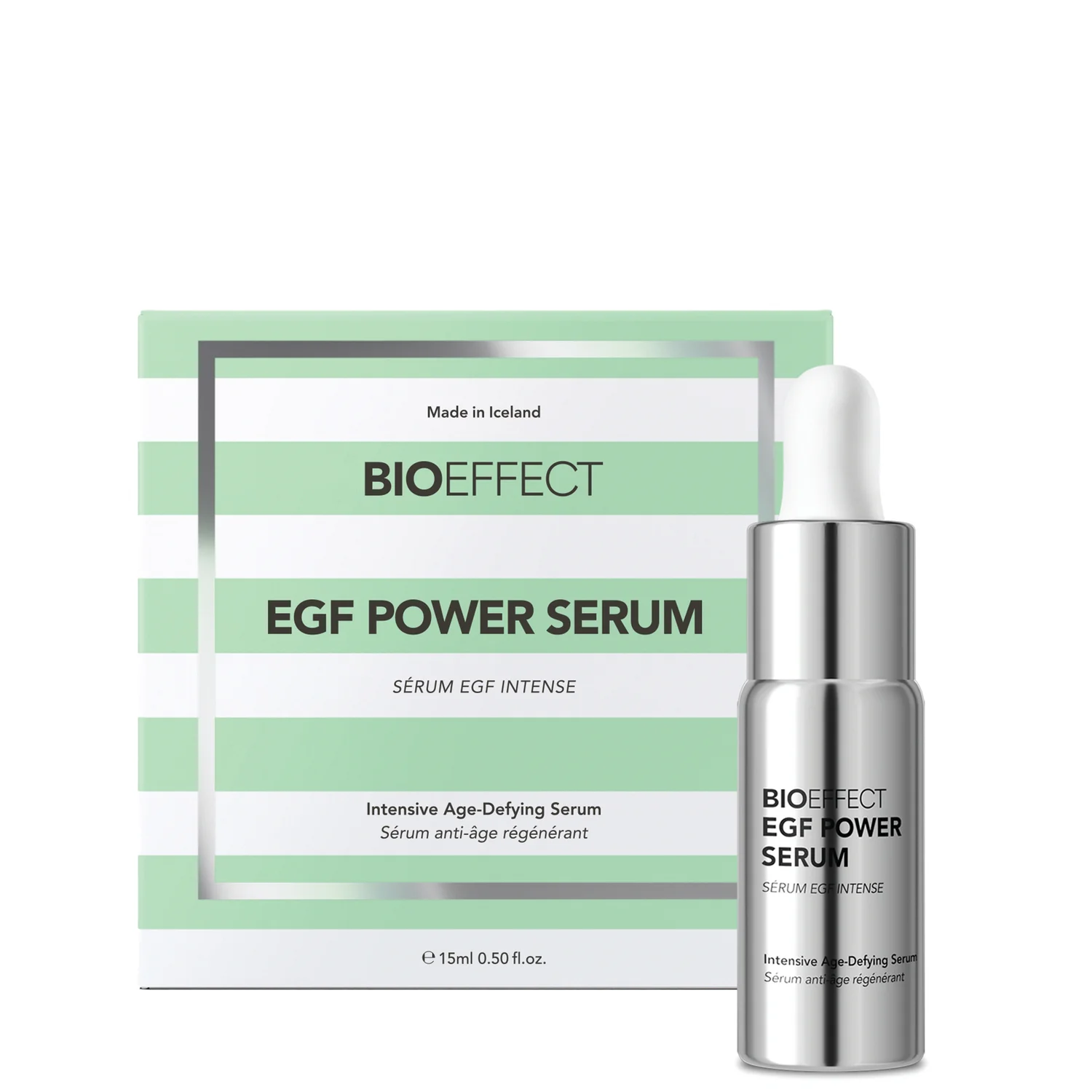
Best for: Fine lines
Why it's the best: Although this serum contains just twelve ingredients, each one has been handpicked in order to deliver really intense results—especially when it comes to addressing the five key signs of ageing. It tackles wrinkles, fine lines, loose skin, pigmentation, and dryness—and clinical studies show improvements of up to 72% in just three months.
Who What Wear Editor Review: "I knew the Bioeffect EGF Power Serum was working its magic when I recently went for a skin treatment and the practitioner said my skin looked amazing—I owe all credit to this. It contains powerhouse ingredients including growth factors and NAG to plump fines lines and wrinkles, fade pigmentation and improve skin texture for a smooth, glowy result. I use it at night and when I wake in the morning I'm always amazed how glowy and plump my skin looks," says beauty editor, Eleanor Vousden.
10. Skin Rocks Retinoid 2 Vitamin A Face Serum
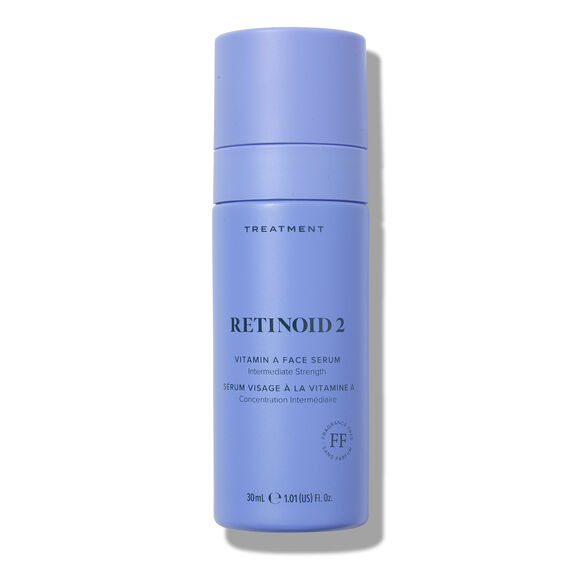
Best for: Acne-prone skin
Why it's the best: Retinoids may be best known as an anti-ageing ingredient, but they’re also great for addressing the concerns associated with acne-prone skin, such as congestion, breakouts, and post-inflammatory pigmentation. They help to reduce the dead skin cell build up that clogs pores and leads to breakouts. This intermediate level serum is ideal for those who have used retinoids before, but there’s also a beginner level version for retinoid newbies.
For
- Can help reduce breakouts
- Can also help with clogged pores
Against
- Expensive
11. Skinceuticals C E Ferulic Vitamin C Serum
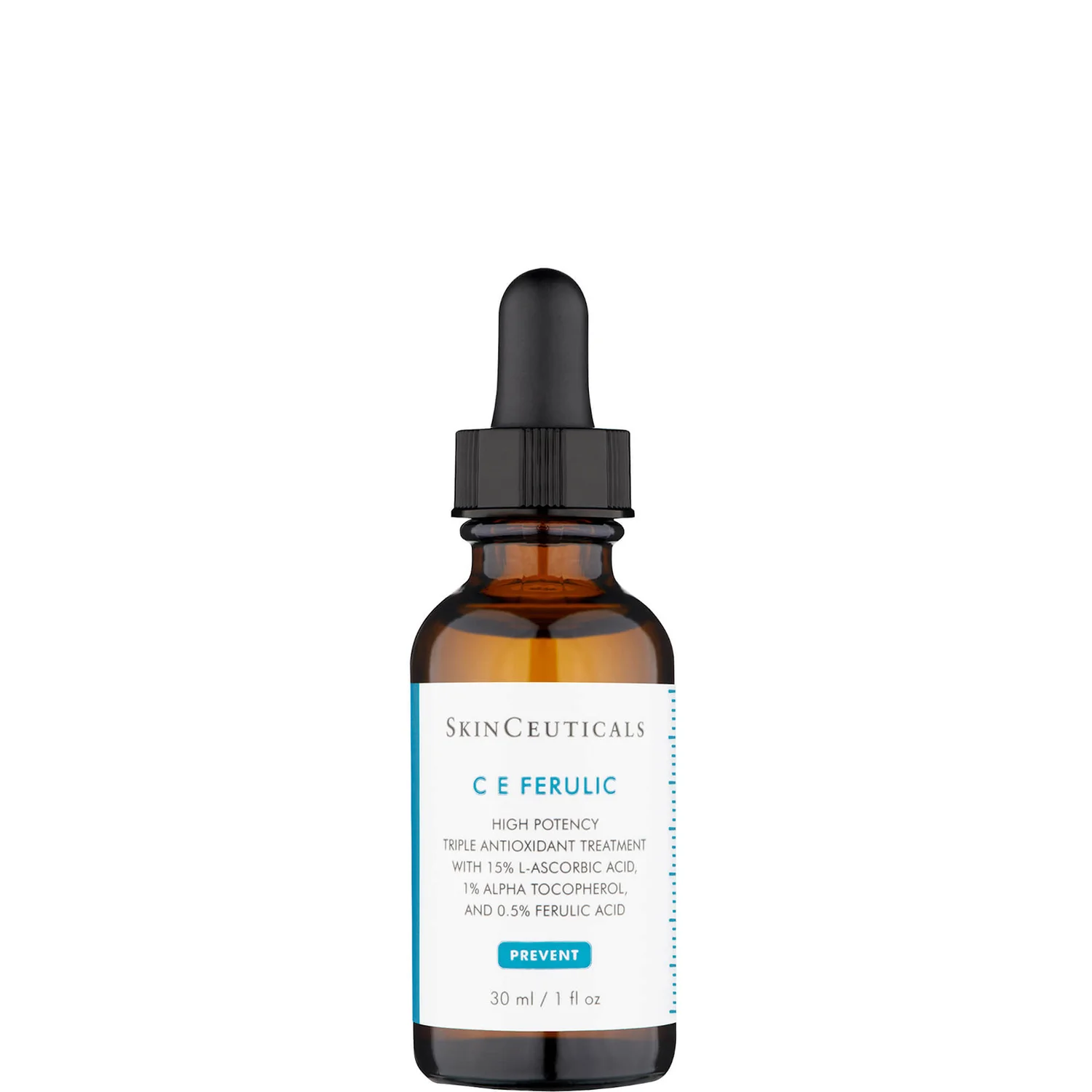
Best for: Hyperpigmentation
Why it's the best: SkinCeuticals serums may be expensive, but trust us, they’re formulated with high quality and super innovative ingredients which make them worth every single penny (which is why there are two of them in this roundup). SkinCeuticals C E Ferulic serum is the brand's most iconic serum for good reason. Not only does it help to fade sun damage and pigmentation, but it leaves your skin with both an instant and long-term glow with daily use. It's an investment that you won't regret.
Who What Wear Editor Review: "After using this serum consistently for two months, my skin is so glowy and the most even-toned it has ever been. Its no wonder that Hailey Bieber, Sienna Miller and Kendall Jenner count themselves as fans of it," says beauty editor, Eleanor Vousden.
For
- Adds a beautiful glow to the skin
- Helps fight hyperpigmentation
Against
- Very expensive
12. Dr.Jart+ Cicapair Intensive Soothing Repair Serum
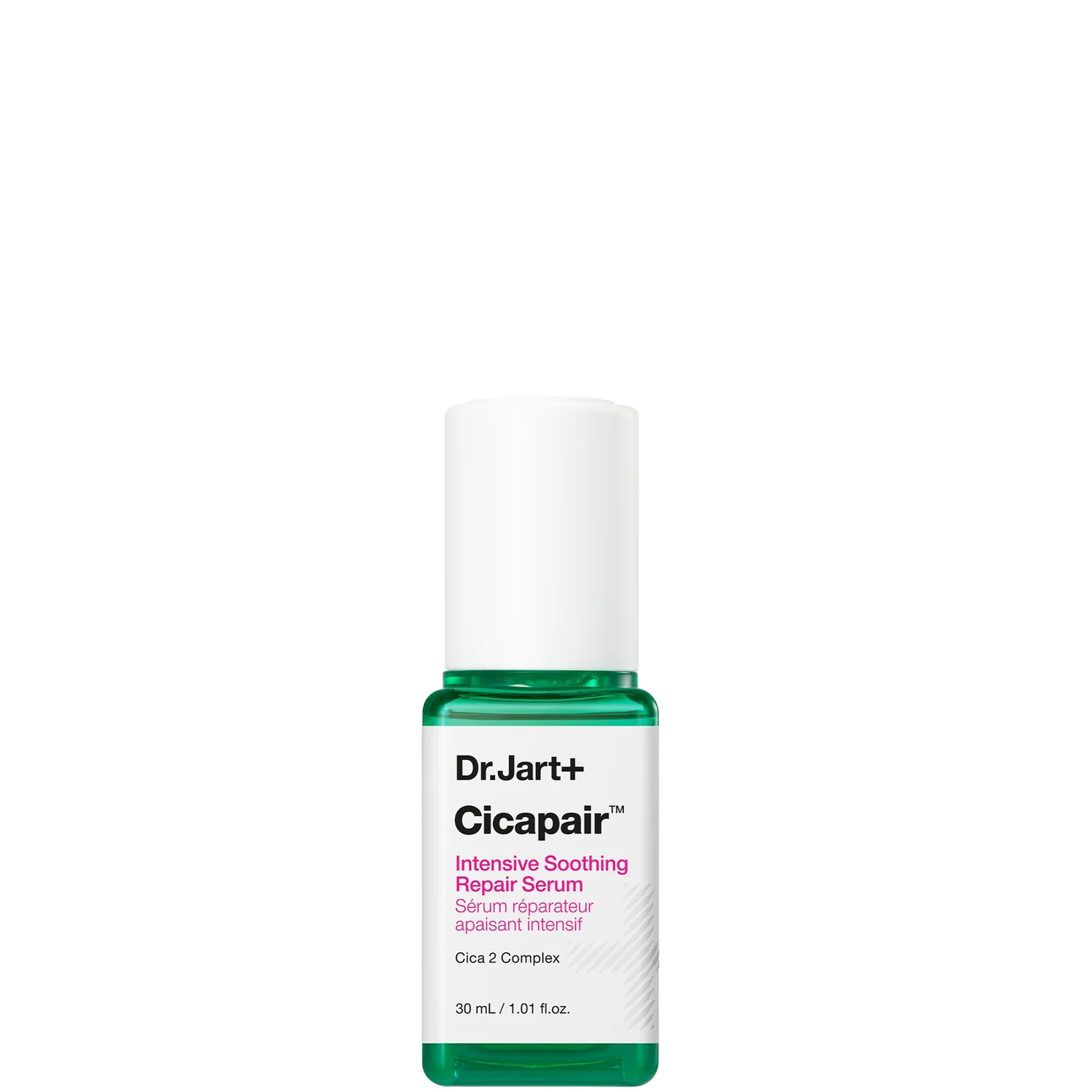
Best for: Reducing redness
Why it's the best: If you have sensitive skin then you may already be familiar with cica (also known as tiger grass or centella asiatica), which helps to soothe, calm, and reduce redness. With its watery gel texture, this serum feels cooling upon application, so if your redness is also accompanied by irritation, it offers instant relief.
For
- Refreshing texture
- Relives irritation
- Reduces redness
Against
- Not everyone will love the more watery texture
13. La Roche-Posay MelaB3 Serum
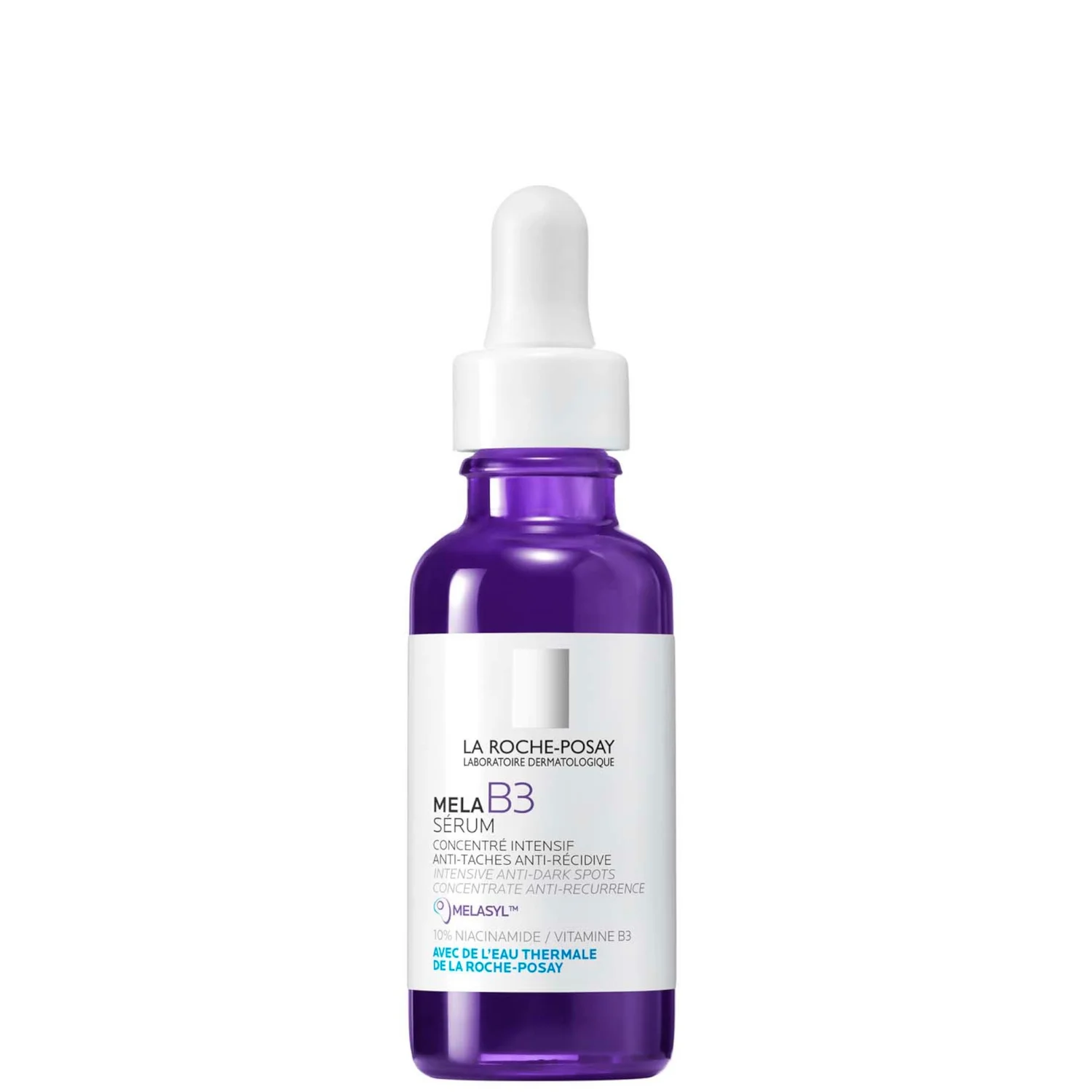
Best for: Uneven skin tone
Why it's the best: This serum from La Roche-Posay has become somewhat of a cult product, and is great for those of you who are wanting to even out your skin tone. The formula was developed with dermatologists and pigmentation experts and the serum itself helps to tackle dark spots, uneven tone and even post-blemish marks. It features a new multi-patented Melasyl™ active alongside vitamin B3 (also known as niacinamide), retinol and hyaluronic acid to improve the overall appearance of the skin, and comes in the form of a lightweight gel-serum hybrid.
Who What Wear Editor Review: "I’ve been incorporating this serum into my skincare routine for about a year now, and I’m honestly so impressed. My skin looks brighter, more even, and some of my dark spots have really started to fade. It’s super lightweight and sinks in fast, so it layers well with the rest of my routine. The mix of niacinamide and Melasyl seems to be doing wonders—my skin feels calmer, smoother, and just overall healthier. I wasn’t expecting to see results this quickly, but it’s made such a difference," says junior branded content editor, Humaa Hussain.
For
- Can tackle a range of concerns from dark spots to post-blemish marks
- Lightweight texture
Against
- A little more expensive
14. Byoma Phyto-Mucin Glow Serum
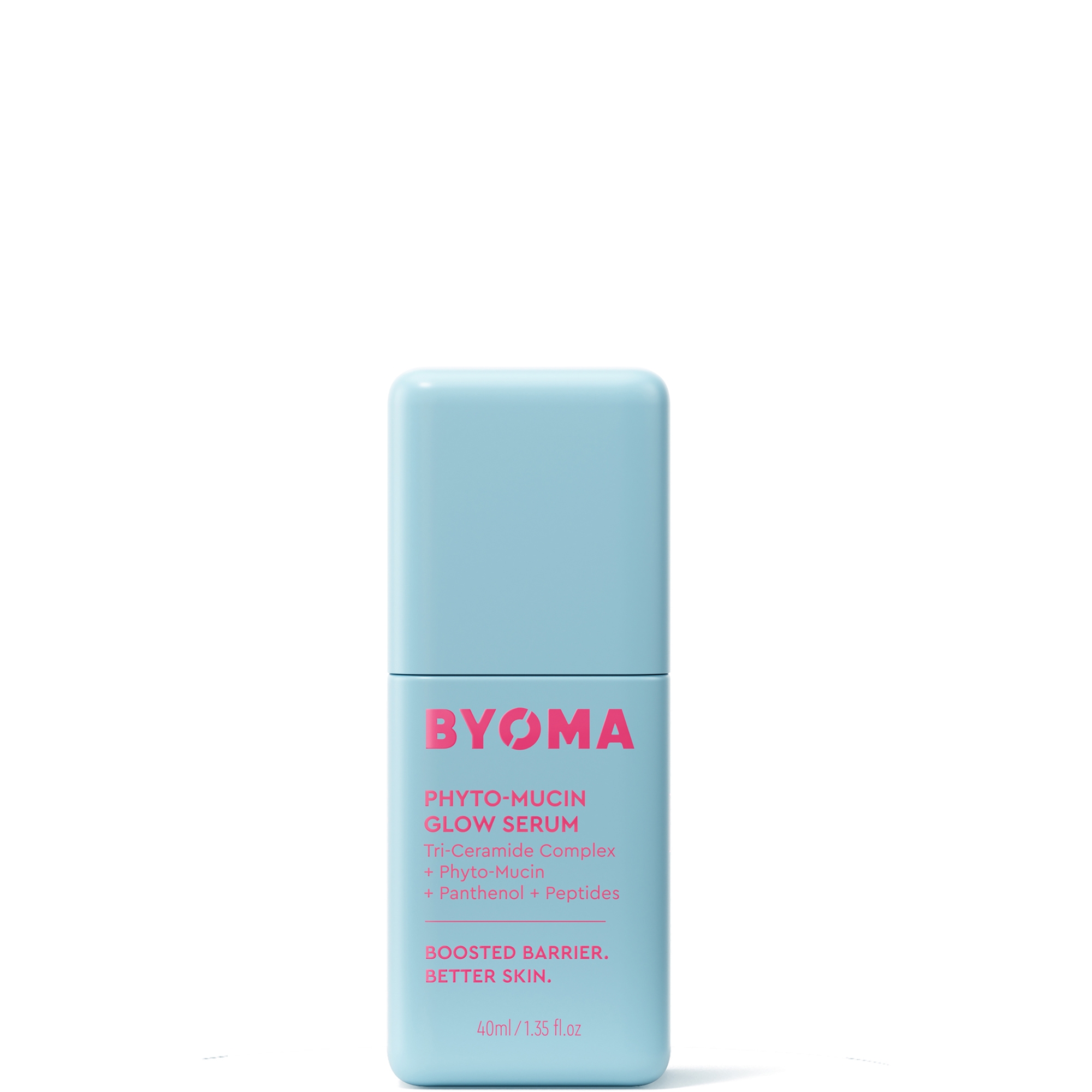
Best for: A glowy finish
Why it's the best: New from Byoma, this Phyto-Mucin Glow Serum is great for whenever your skin is in need of a little boost. Unlike similar serums on the market, this doesn't have that super sticky texture, and instead feels lightweight on the skin. It's packed with plant-powered peptides and hyaluronic acid to hydrate, alongside phytomucin, which is a bio-based ingredient that works to even skin tone and protect the skin barrier.
Who What Wear Editor Review: "If you want that really glowy look this winter, then this is the serum for you. It sinks into the skin in seconds and adds a naturally radiant finish, so I love wearing it in the mornings under makeup," says junior beauty editor, Grace Lindsay.
For
- Affordable
- Lightweight formula
- Adds a beautiful glow
Against
- Packaging can be a little bulky to travel with
15. Cerave Skin Renewing 10% Pure Vitamin C Serum
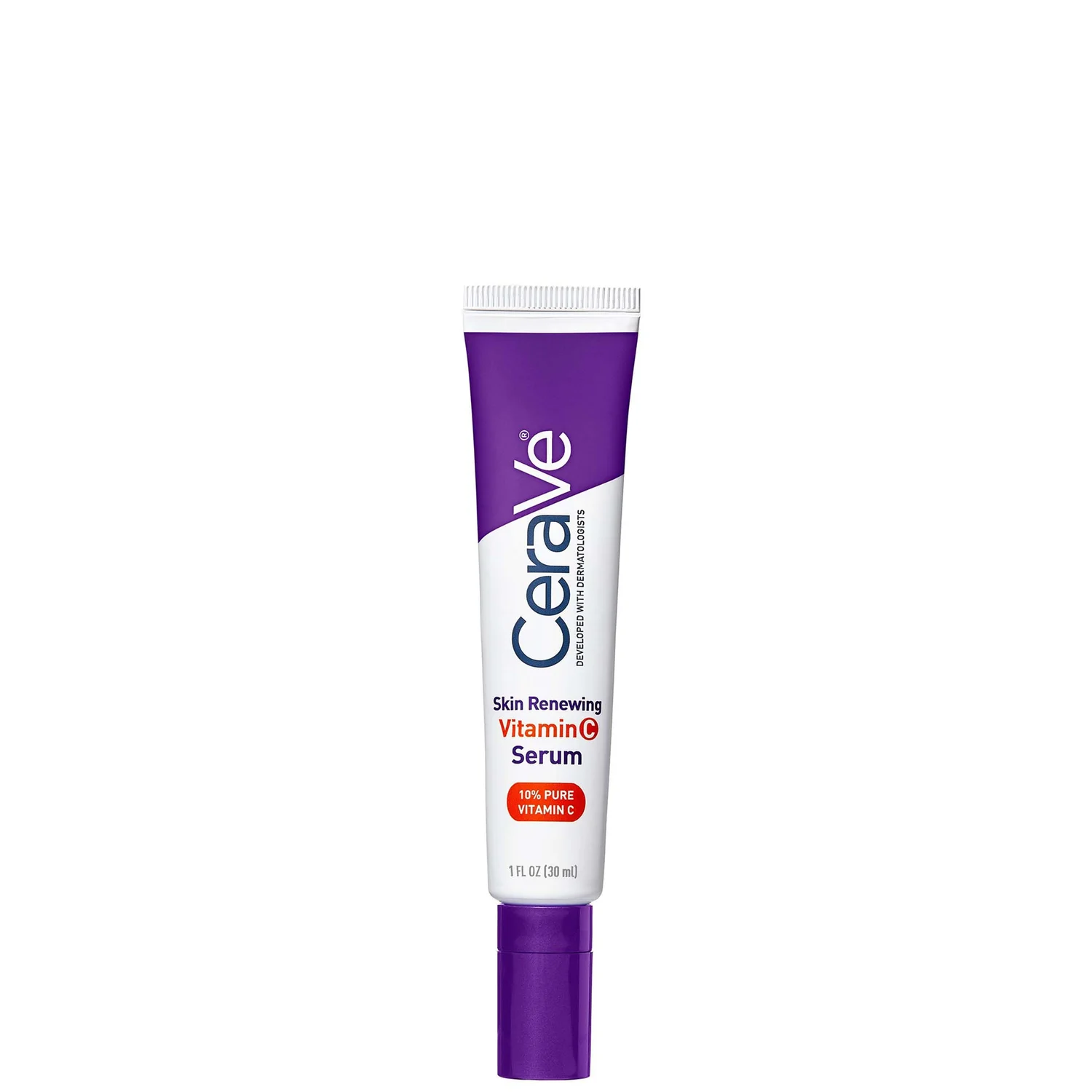
Best for: Skin renewal
Why it's the best: We've written an entire feature on the CeraVe Vitamin C Serum because it's that good. The reason that we love it is that it contains a high potency of vitamin C alongside ceramides and hyaluronic acid to help support hydration and tolerability, so it doesn't irritate more sensitive skin types. Instead, it adds a noticeable glow.
Who What Wear Editor Review: "I can't believe I am saying this, but I have finally found a vitamin C serum that works for me. From the very first day that I started using this product, I have experienced no irritation whatsoever. Instead, my skin is glowing like never before," says junior beauty editor, Grace Lindsay.
For
- More affordable than other vitamin C serums on the market
- Doesn't irritate sensitive skin types
Against
- If you are used to using vitamin C, you might want a stronger formulation
16. Guerlain Abeille Royale Youth Watery Oil Serum
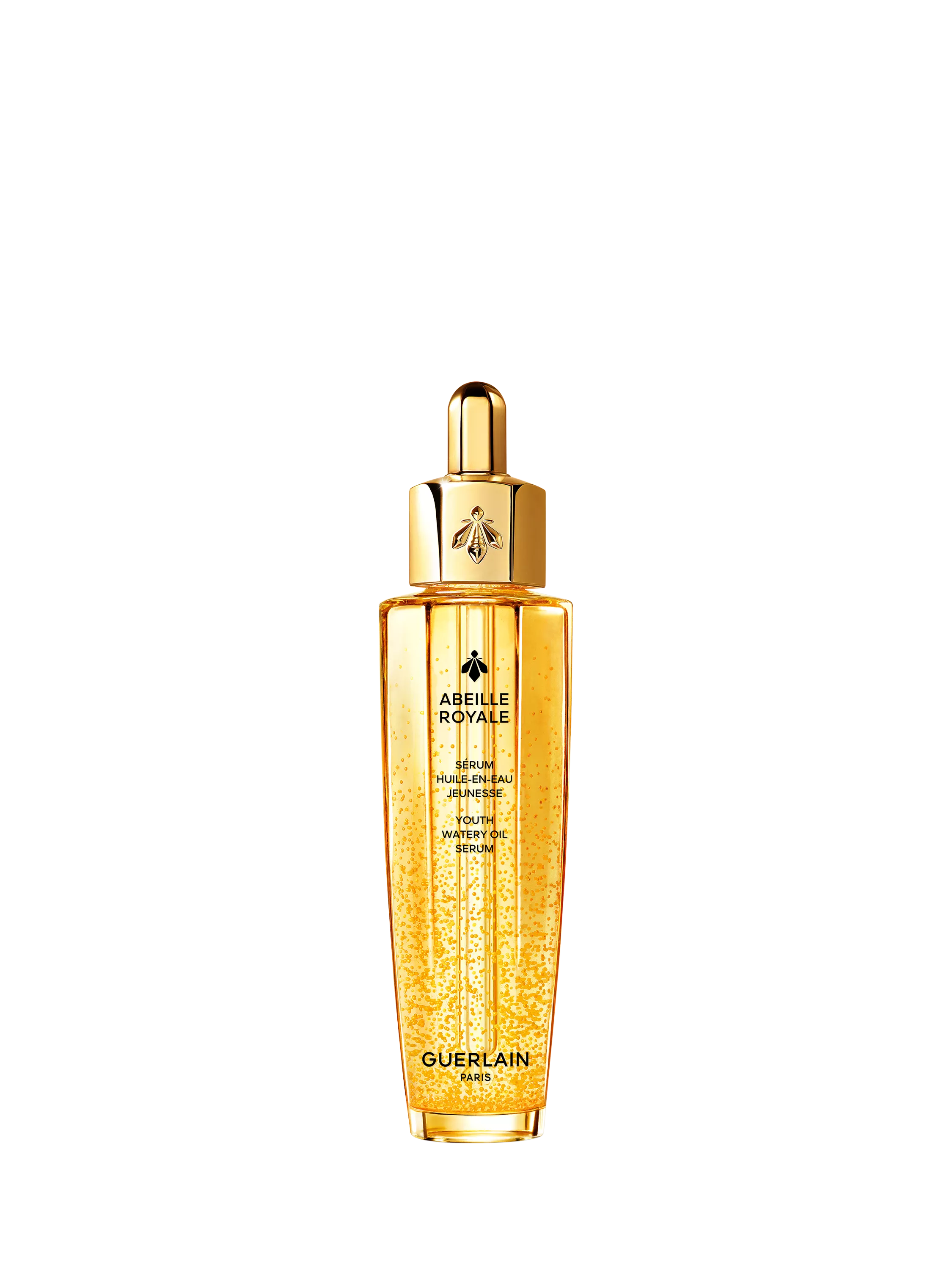
Best for: Radiance
Why it's the best: This serum is unlike anything we have tried before. It contains micro beads that burst onto the skin and transform into a silky smooth liquid that adds serious radiance. The product itself relies on the skin-repairing powers of honey to add that plump, glowy finish that we're all striving for.
Who What Wear Editor Review: "I wasn't sure on this serum at first, as the name made it sound like it could be a little oily. However, after trying it I am completely hooked. It feels like velvet on the skin and is perfect for these cold winter months when your complexion is in need of a little TLC," says junior beauty editor, Grace Lindsay.
For
- Silky smooth texture
- Very hydrating
- Adds a radiant finish
Against
- A little more expensive
- Might not be best for really oily skin types
17. Sunday Riley Good Genes Glycolic Acid Treatment
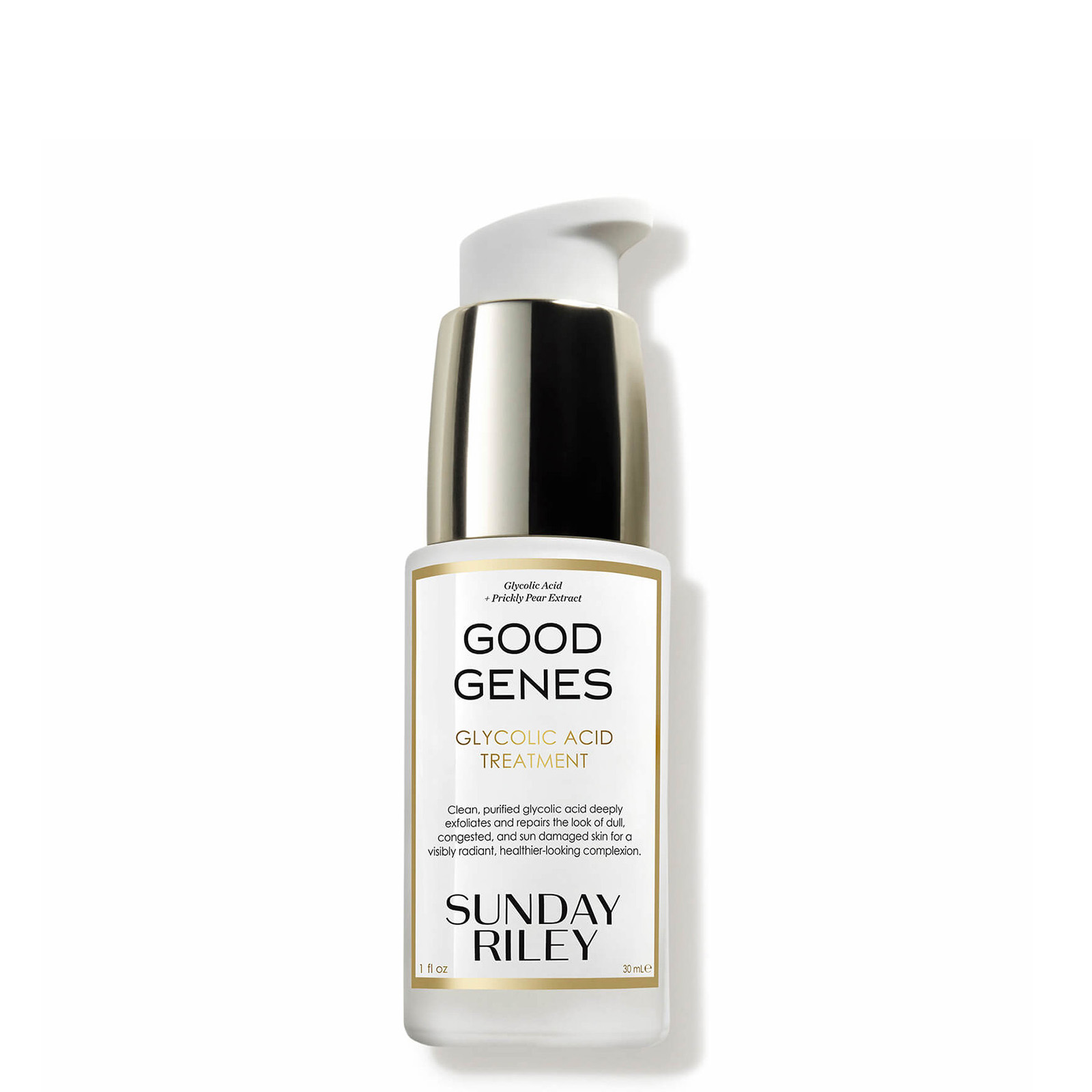
Best for: Smoothing skin
Why it's the best: Glycolic acid—an AHA (alpha hydroxy acid) which breaks down dead skin cells—is front and centre in this skin-smoothing serum. The acid works to resurface skin by exfoliating, so uneven and congested skin types don’t stand a chance. In addition, it also helps to brighten skin and address fine lines and hyperpigmentation. It can be a little tingly when you first try it, but it soon settles on the skin. Just be sure to wear a dedicated SPF daily when using exfoliating serums.
Who What Wear Editor Review: "I don’t say this lightly, but Sunday Riley’s Good Genes Glycolic Acid Treatment has made the biggest difference to my acne-prone skin out of any product I’ve tried—and there have been a lot. Targeting skin congestion, a quick swipe of this breaks down dead skin cells and unclogs pores. In the short term, the product reveals a glowier and firmer complexion, and in the long term, it prevents my skin from breaking out nearly as often," says news writer, Natalie Munro.
For
- Helps target congestion
- Reveals a smoother skin texture
Against
- Expensive
- Can be tingly at first
This story was originally published at an earlier date and has since been updated.

Grace Lindsay is the junior beauty editor at Who What Wear UK. At the age of 18 she decided to train as a makeup artist before going on to study english and media at Goldsmiths University. It was during that time that she explored her love for journalism by interning at a small beauty start-up based in Shoreditch. Since then, she has worked at a number of publications including Marie Claire and Hello!, where her love for all things beauty continued to grow.
As Who What Wear UK's junior beauty editor, she covers everything from the latest hair trends to the stand-out makeup products of the season.
- Grace DayFreelance Beauty Editor
-
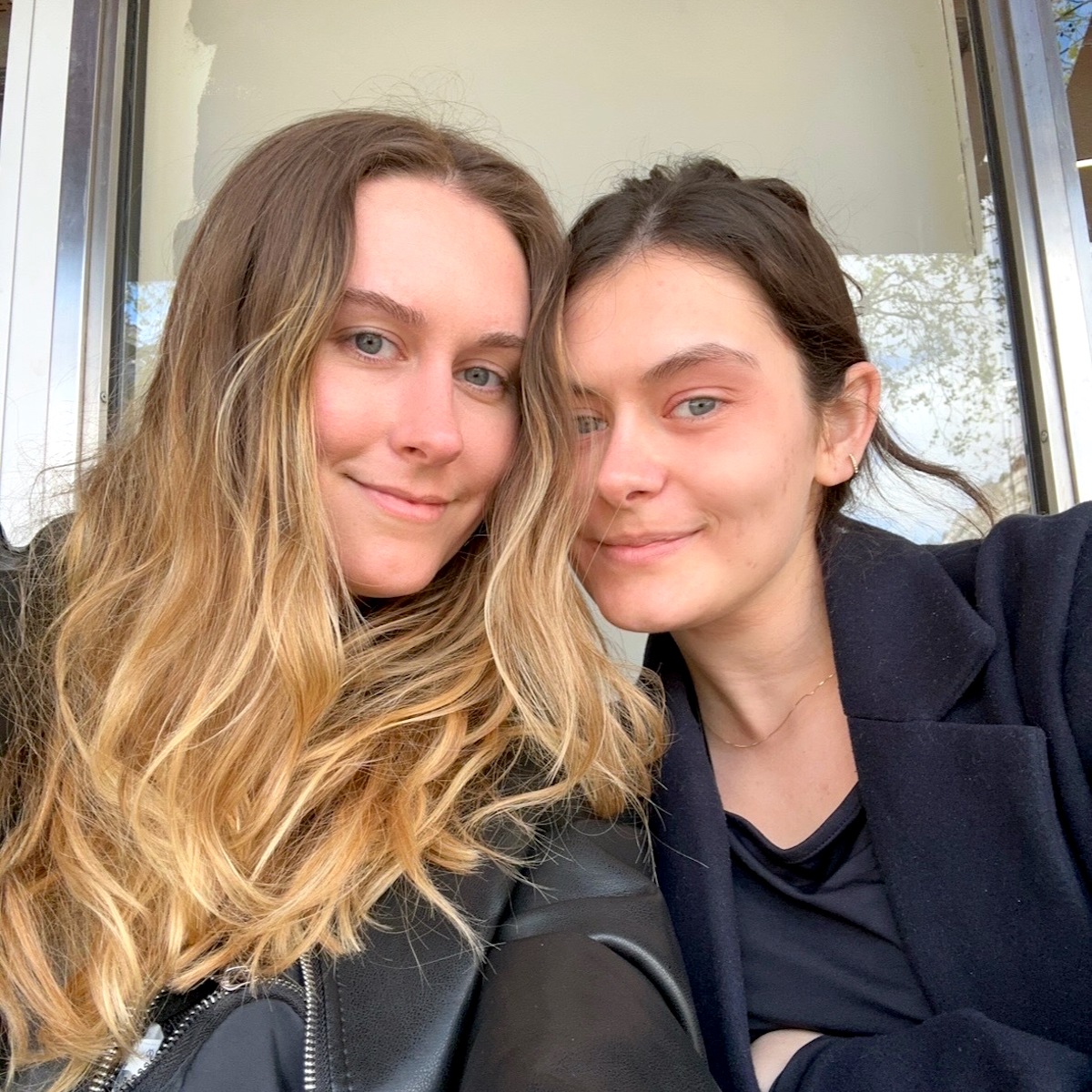 My Sister and I Have Opposite Skin Types, But These Products *Magically* Work for Both of Us
My Sister and I Have Opposite Skin Types, But These Products *Magically* Work for Both of UsThese are our "unicorn" products.
By Kaitlyn McLintock
-
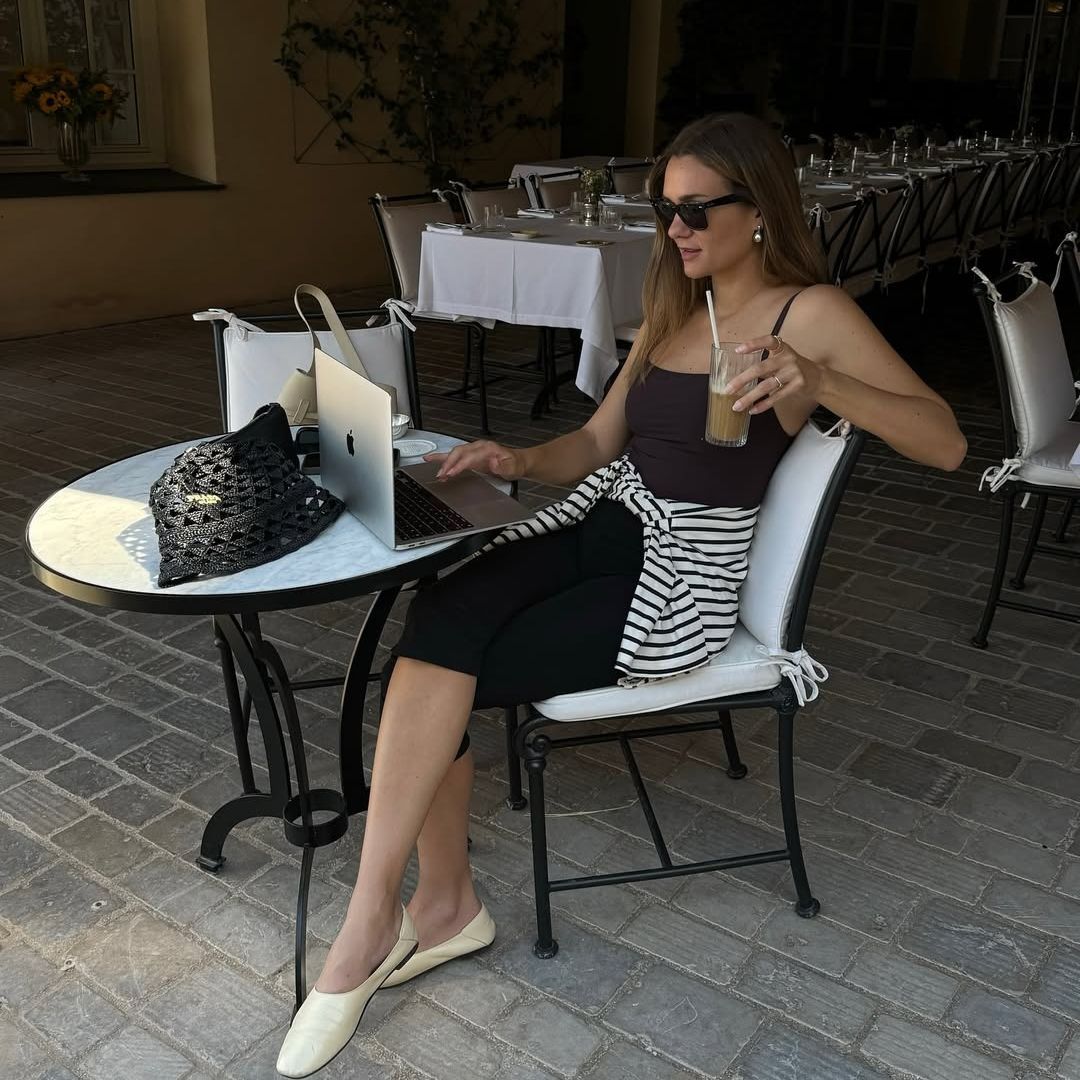 I Polled Our Editor Slack Channel—10 French Beauty Products We’d Buy From Ulta’s Spring Sale
I Polled Our Editor Slack Channel—10 French Beauty Products We’d Buy From Ulta’s Spring SaleBy Alyssa Brascia
-
 5 Underrated Pillars of Youthful and Glowing Skin, According to Zendaya's Facialist
5 Underrated Pillars of Youthful and Glowing Skin, According to Zendaya's FacialistI'm taking so many notes.
By Shawna Hudson
-
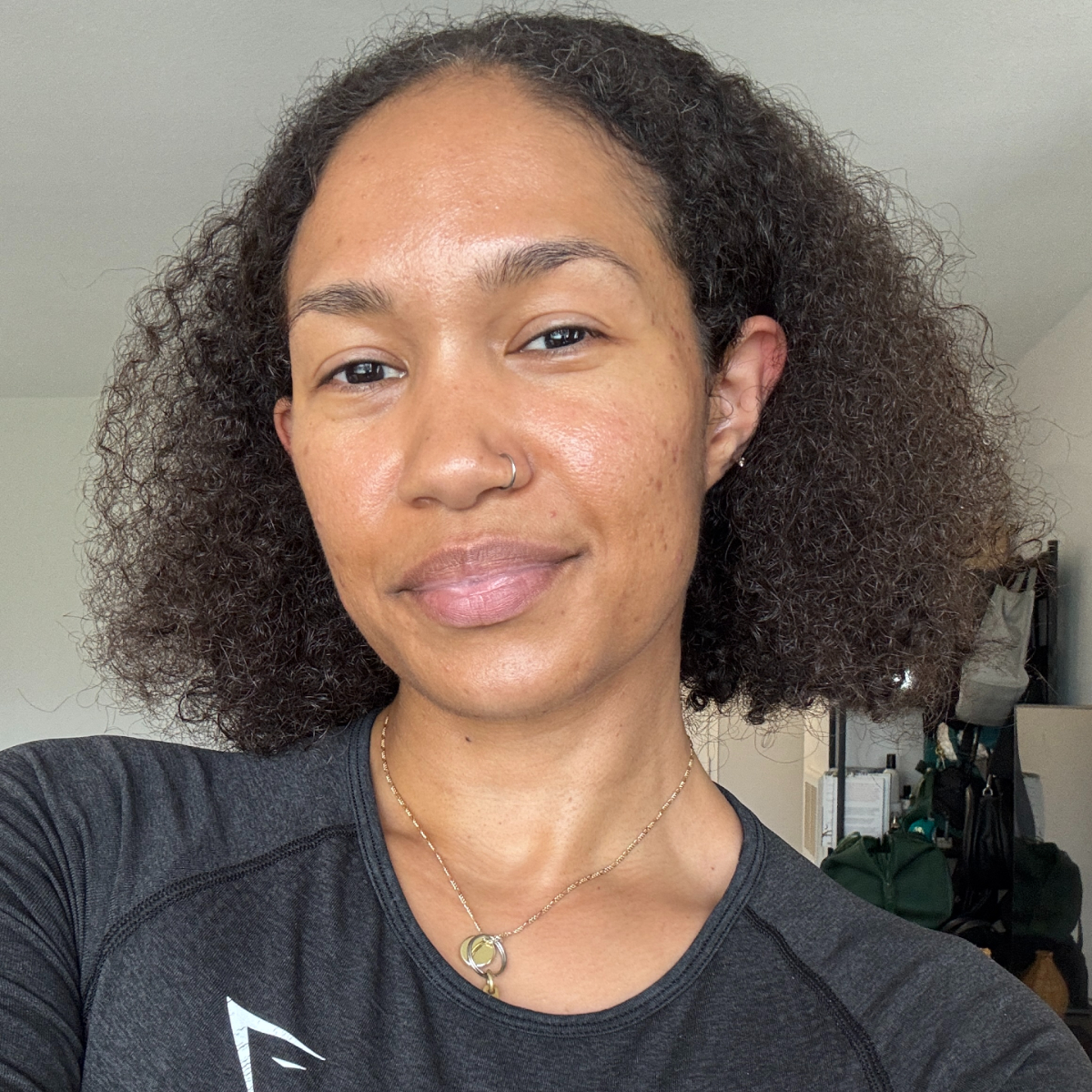 Aestheticians on Instagram Can't Stop Raving About This Acne-Clearing Serum, so I Tried It
Aestheticians on Instagram Can't Stop Raving About This Acne-Clearing Serum, so I Tried ItIt's perfect for sensitive skin.
By Shawna Hudson
-
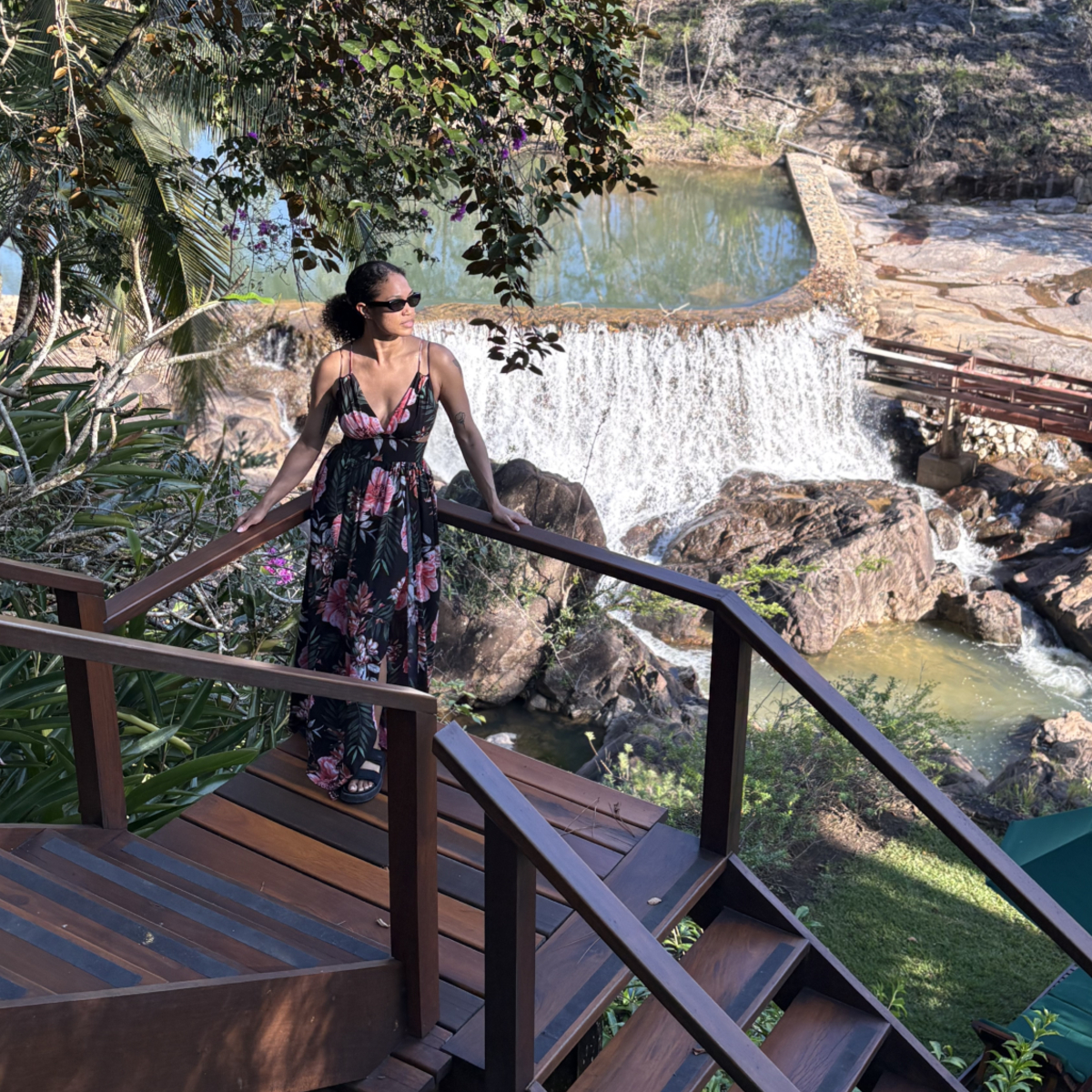 I Just Visited the Rainforest—These Were the Beauty Products That Proved Essential
I Just Visited the Rainforest—These Were the Beauty Products That Proved EssentialTravel dryness? I don't know her.
By Shawna Hudson
-
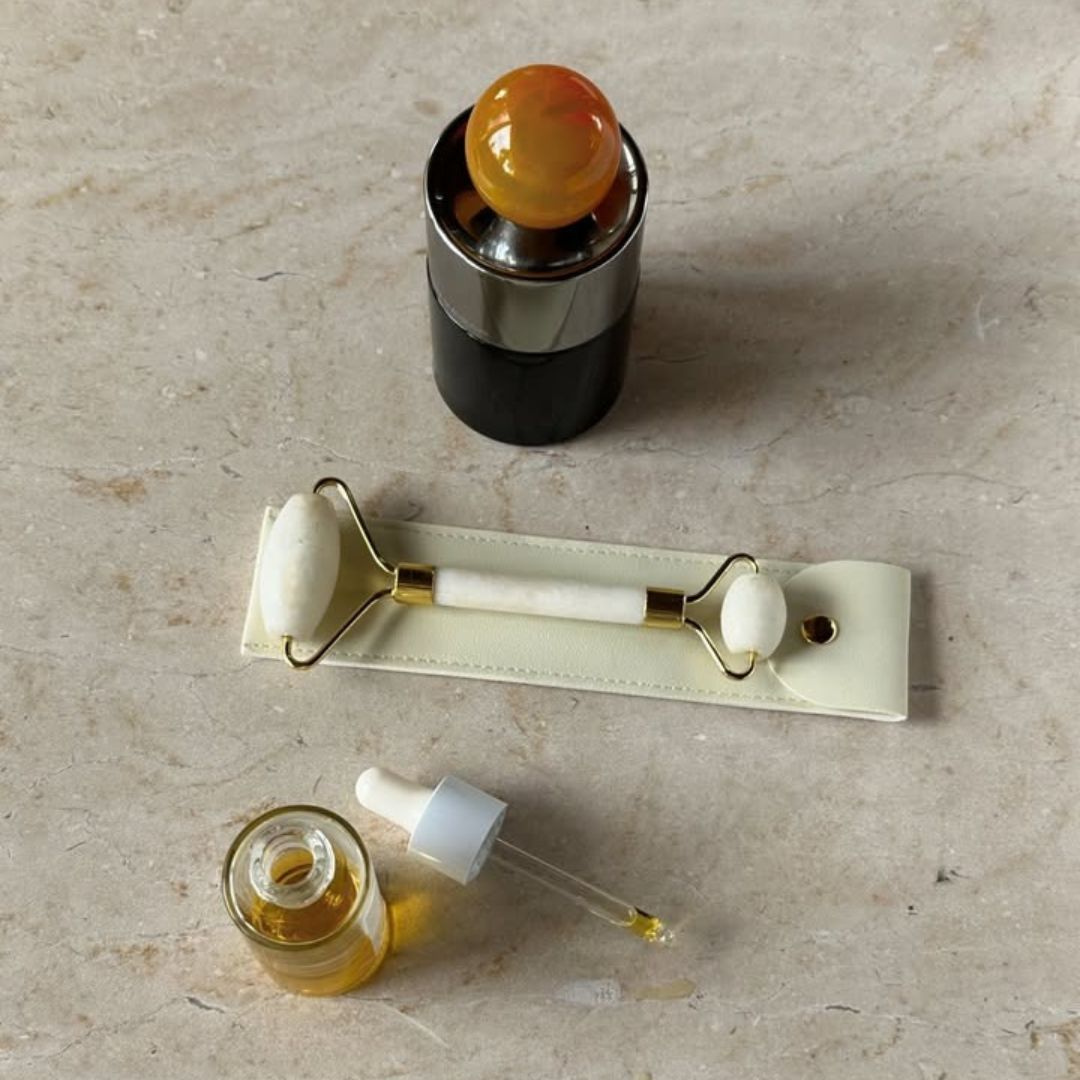 The Numbers Don't Lie—WWW Readers Shop These 11 Products the Most, and They're on Sale RN
The Numbers Don't Lie—WWW Readers Shop These 11 Products the Most, and They're on Sale RNSaving on your faves is basically a profit… It's girl math.
By Alyssa Brascia
-
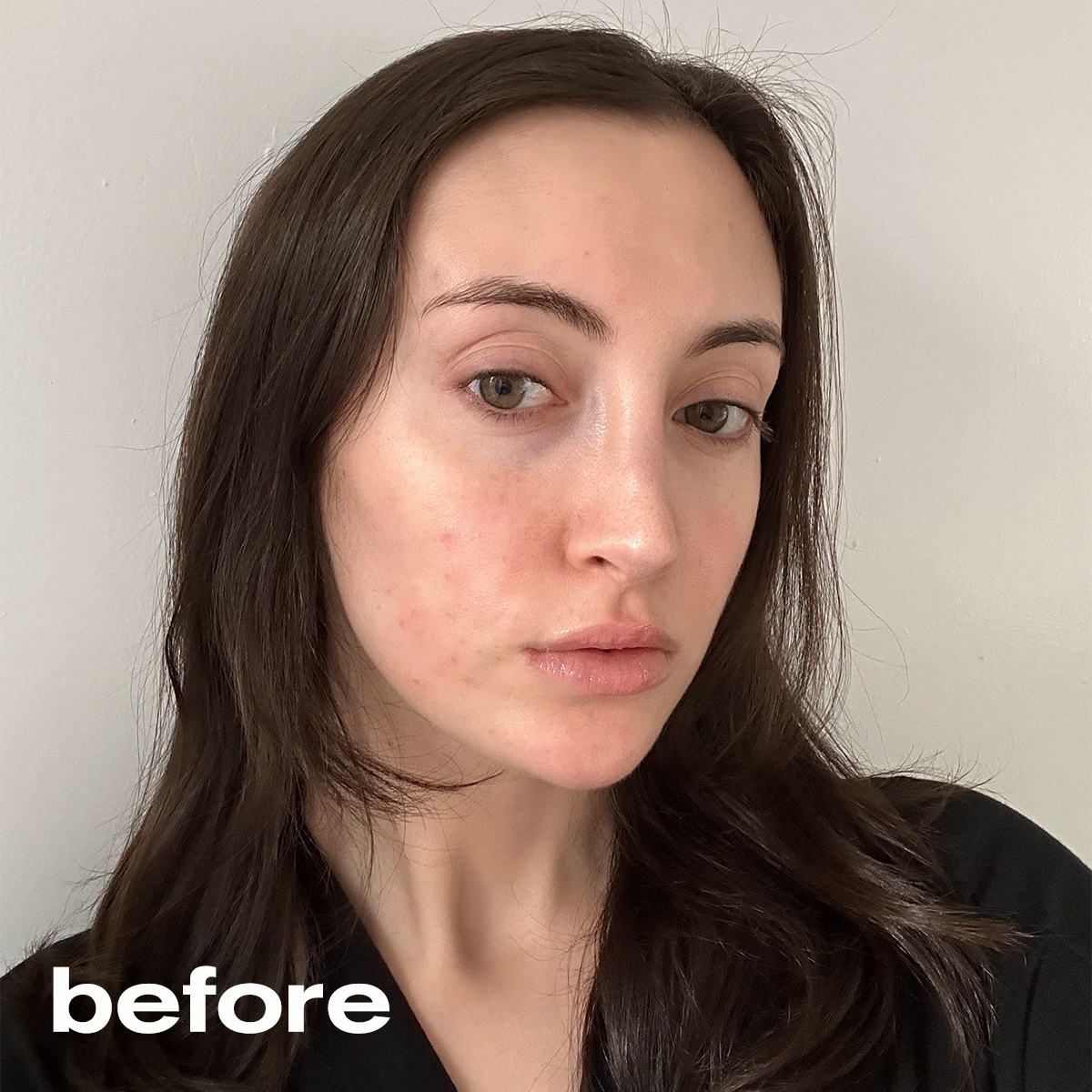 Chic Londoners Love This Ultra-Light Moisturizer, and No Lie, It Saved My Angry Winter Skin
Chic Londoners Love This Ultra-Light Moisturizer, and No Lie, It Saved My Angry Winter SkinIts key ingredient changed everything.
By Alyssa Brascia
-
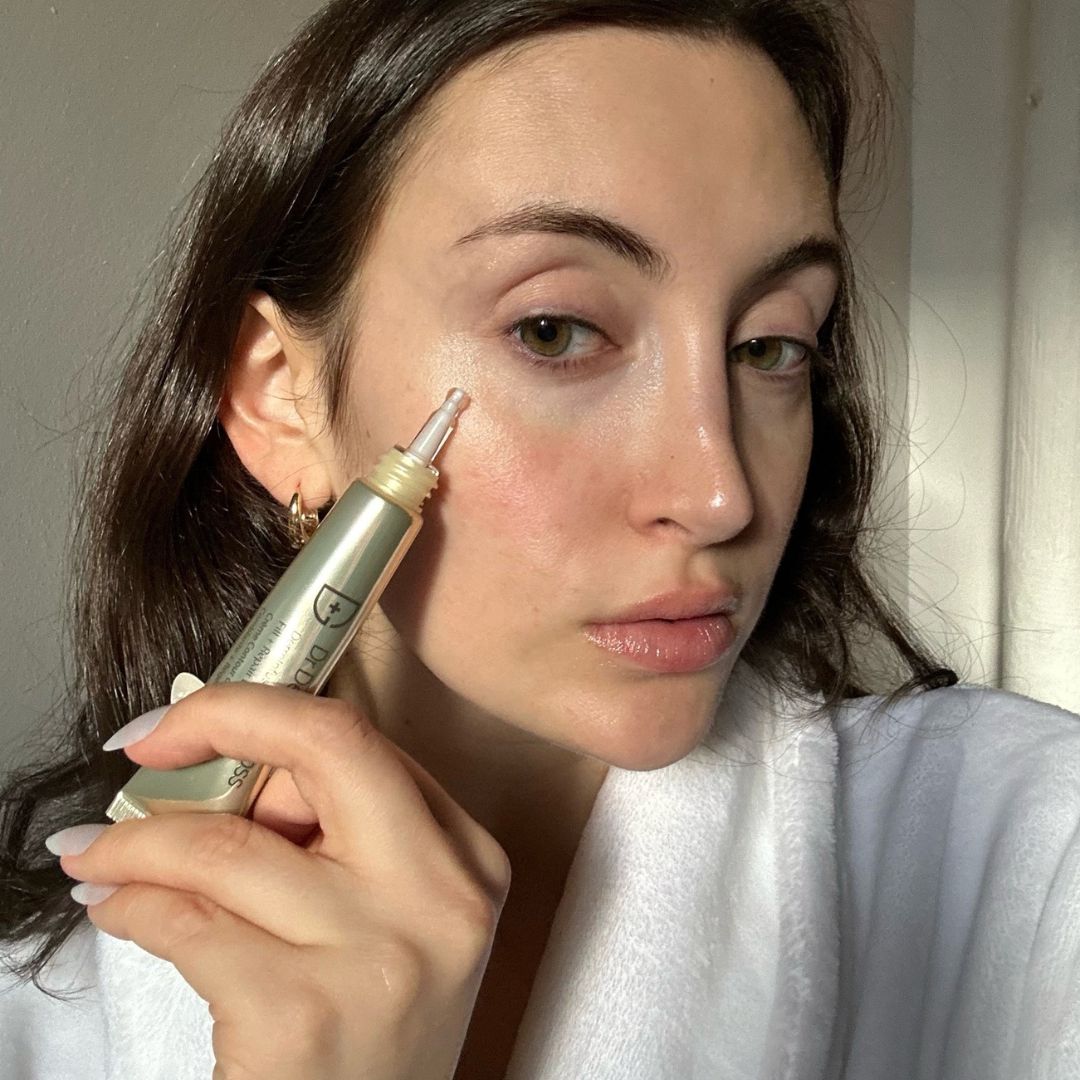 Cancel Your Filler Appointment—This Derm-Developed Eye Cream Is Your Needle-Free Alternative
Cancel Your Filler Appointment—This Derm-Developed Eye Cream Is Your Needle-Free AlternativeI can’t believe my eyes (pun intended).
By Alyssa Brascia
